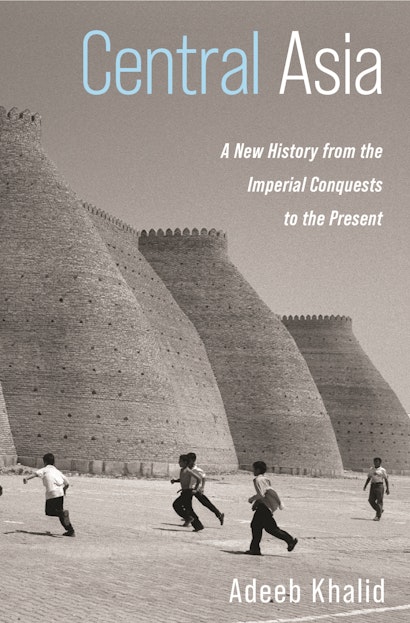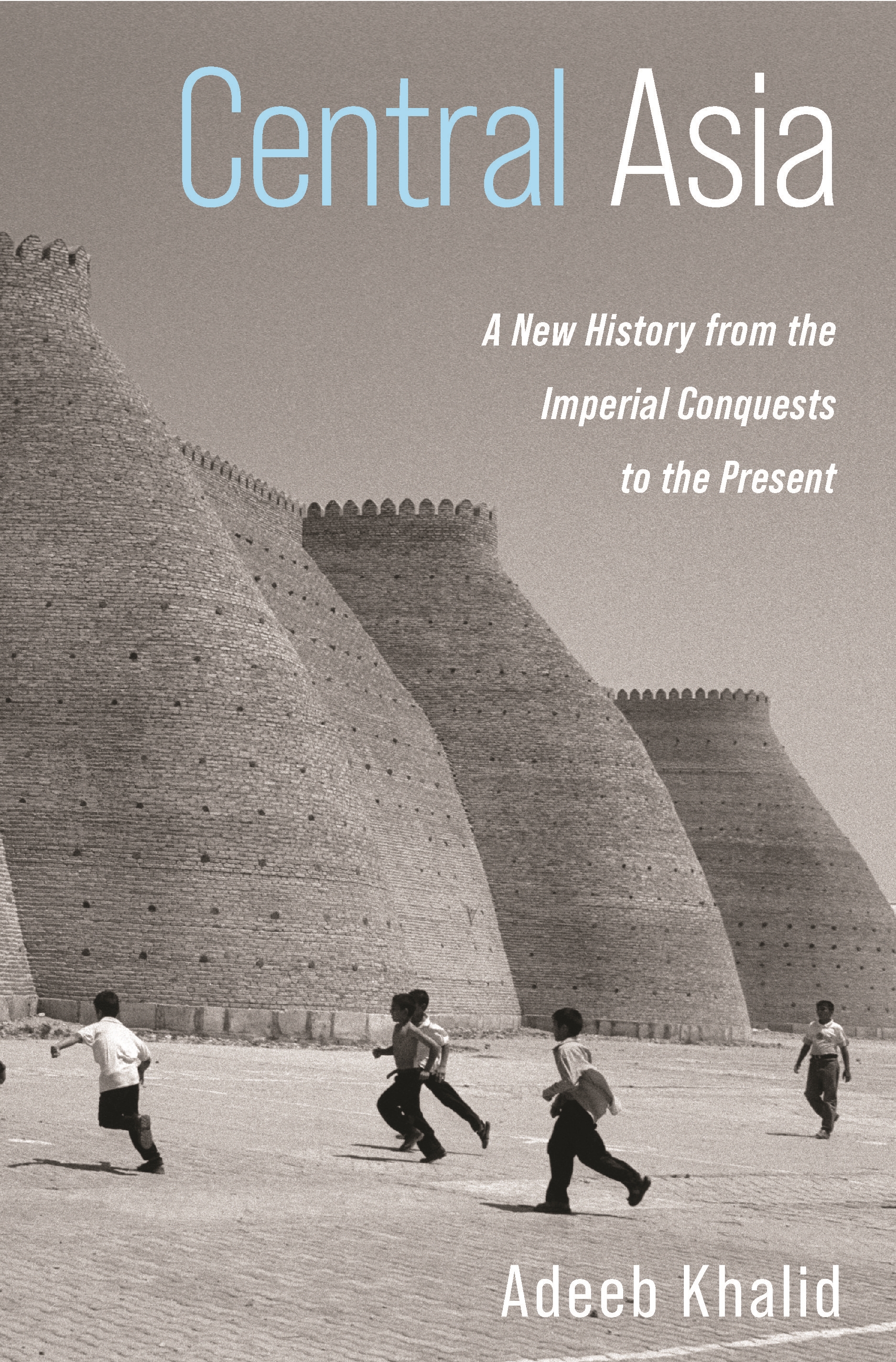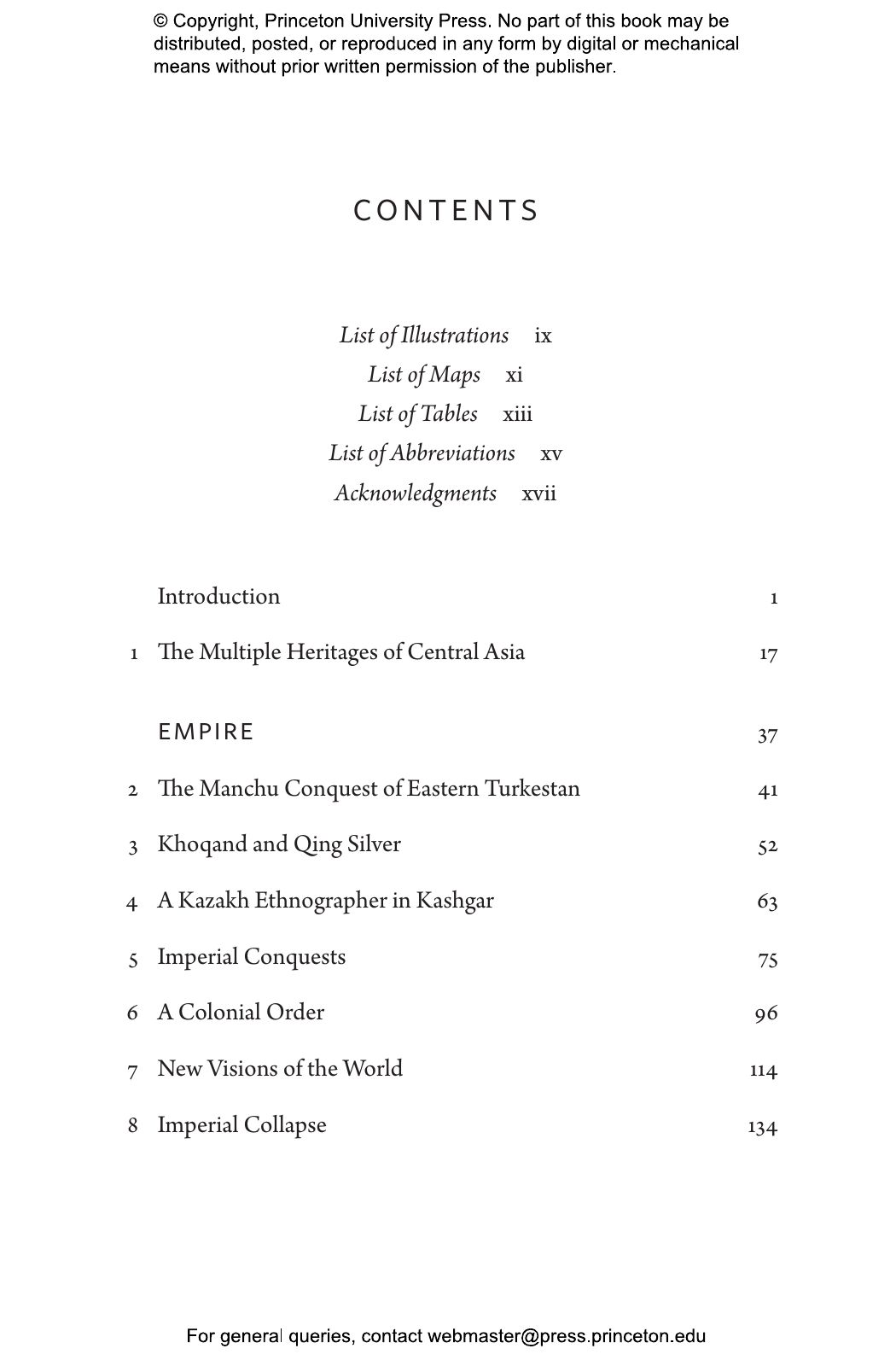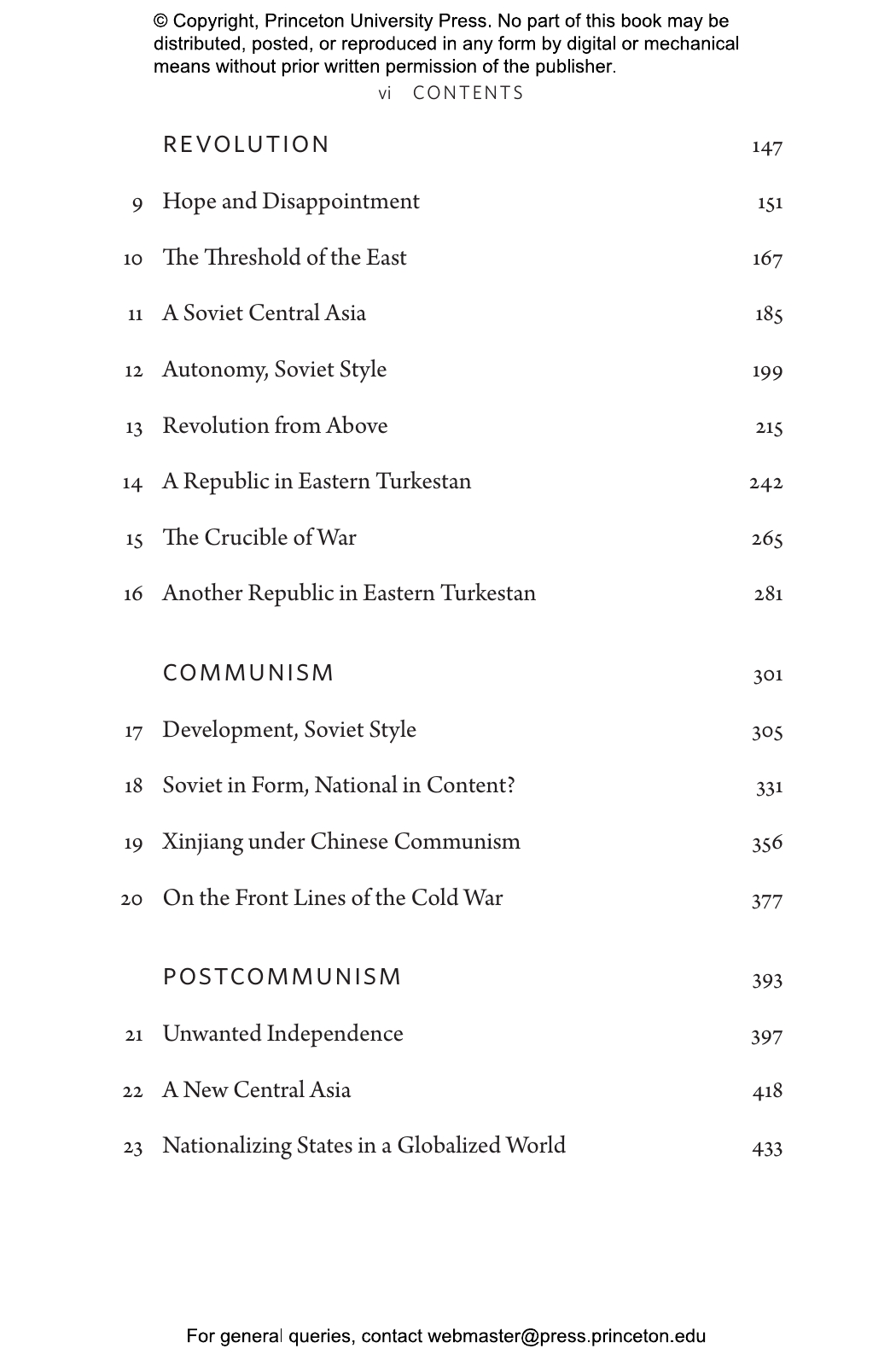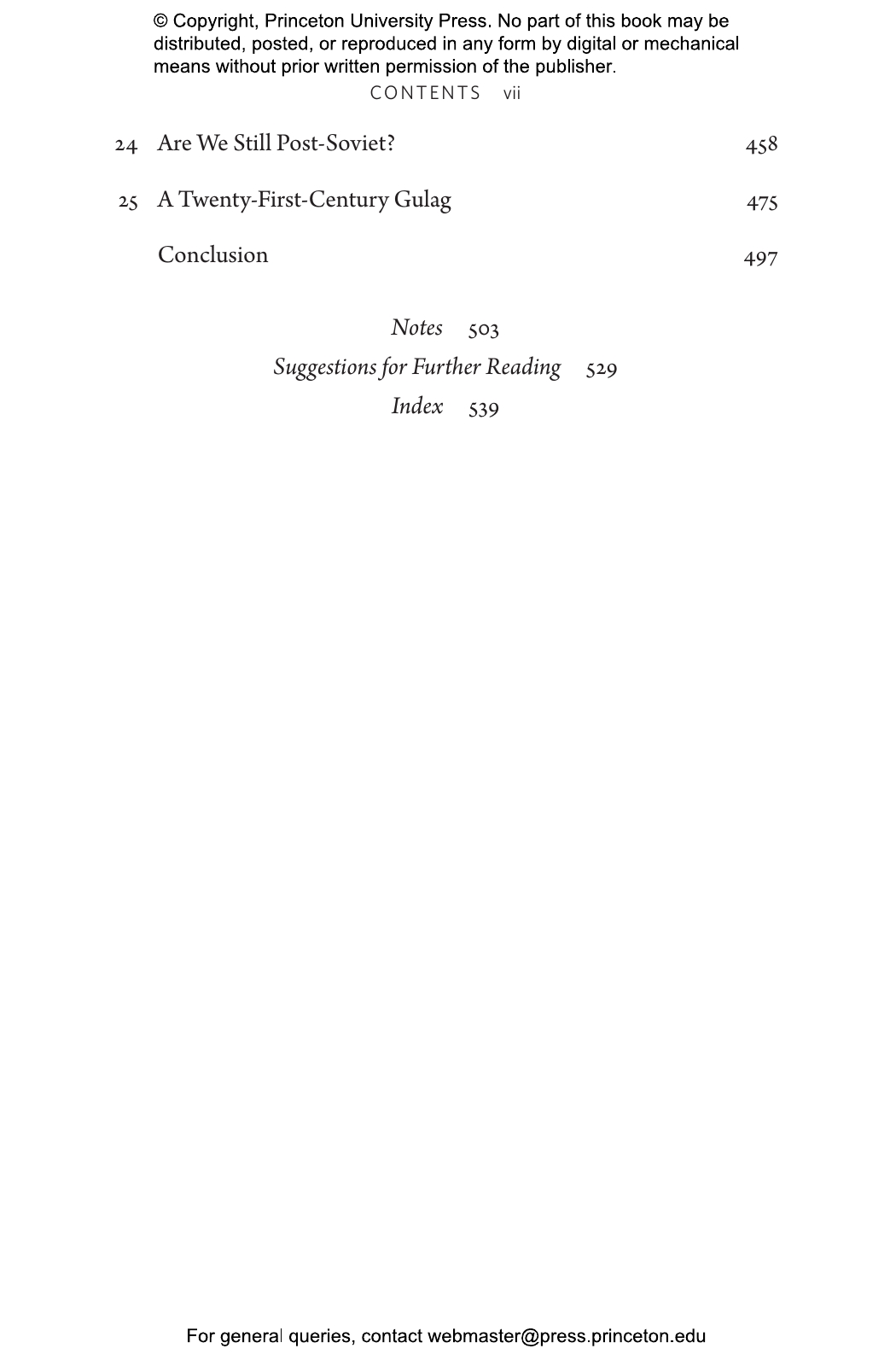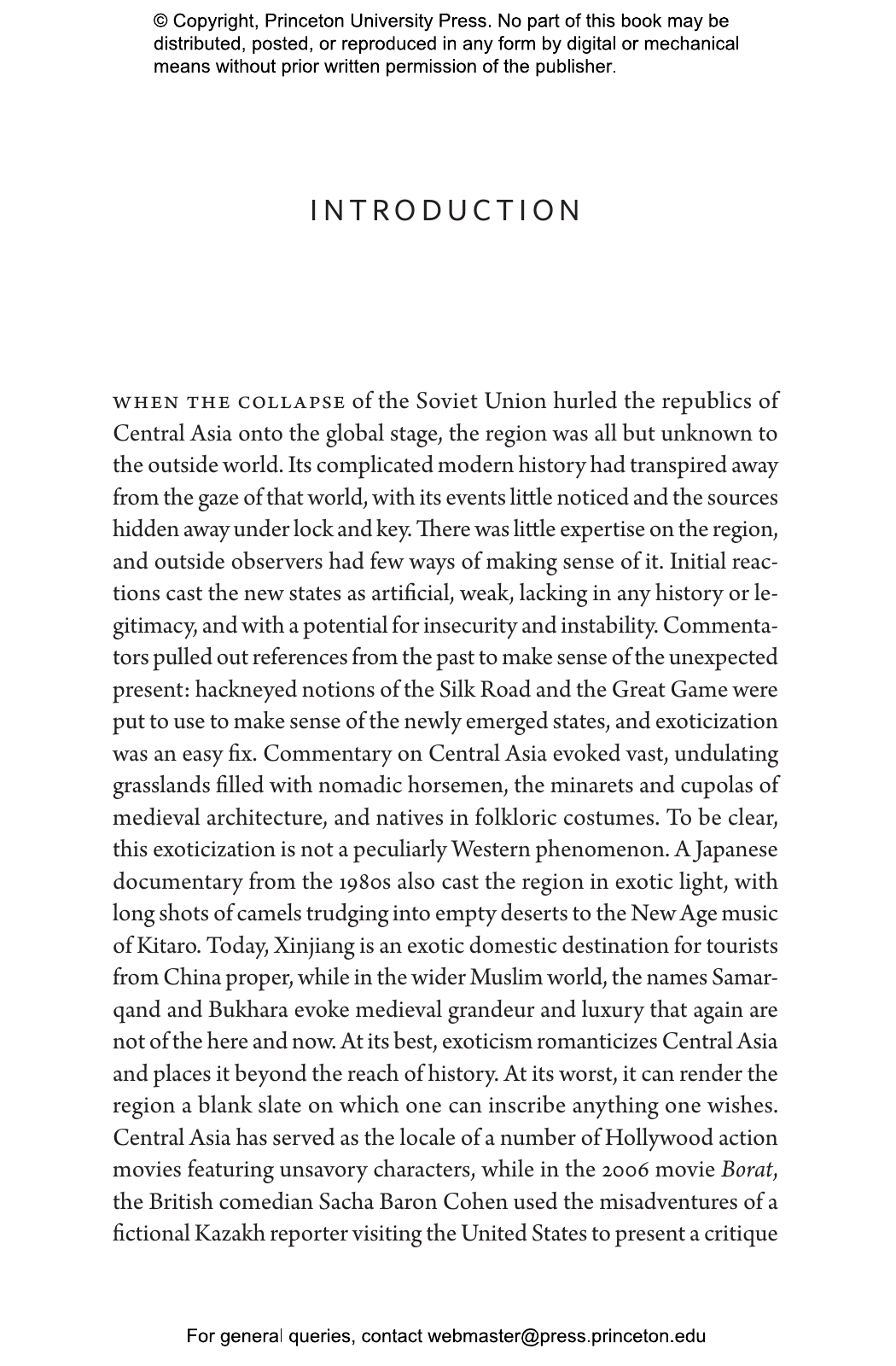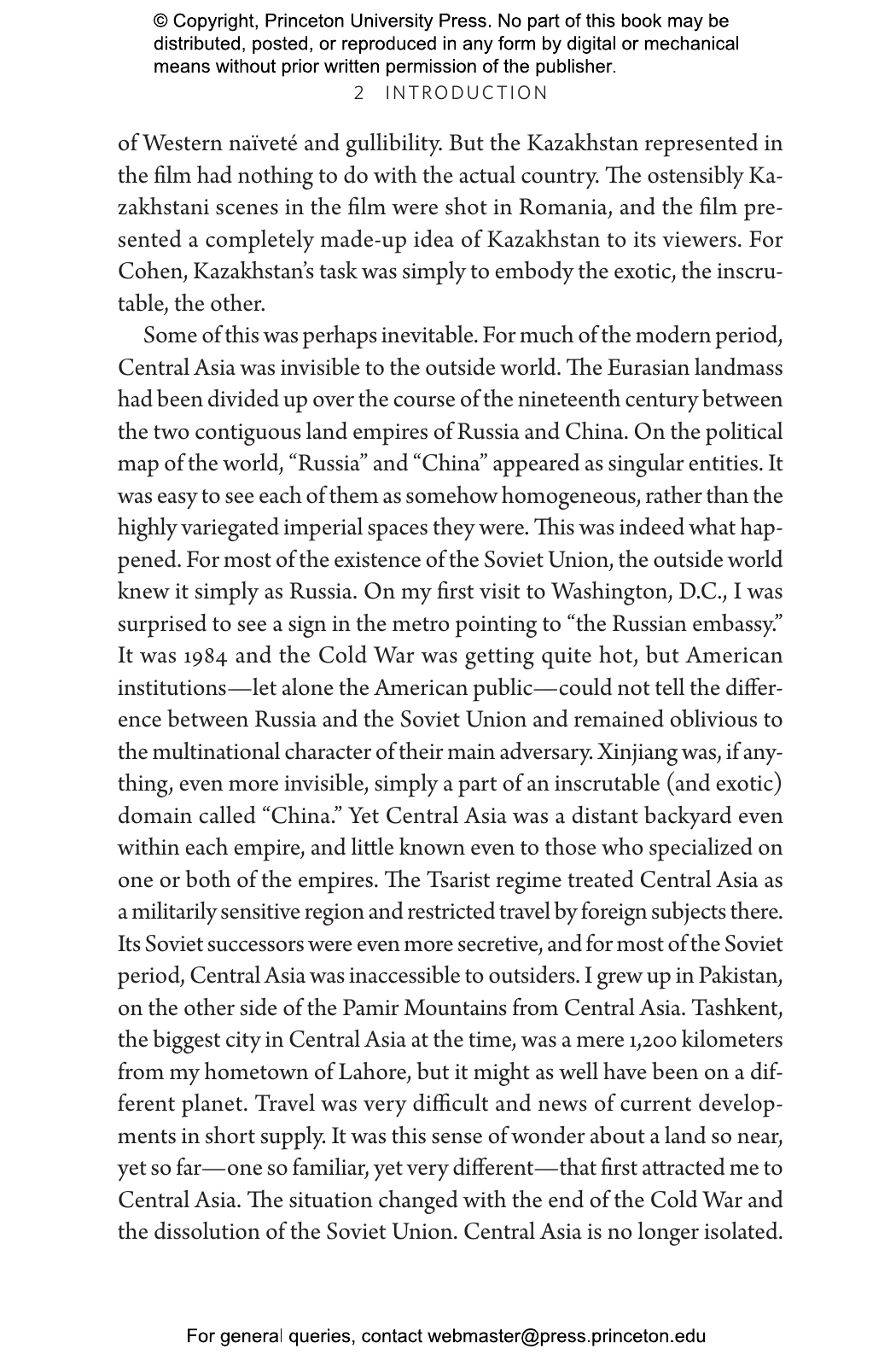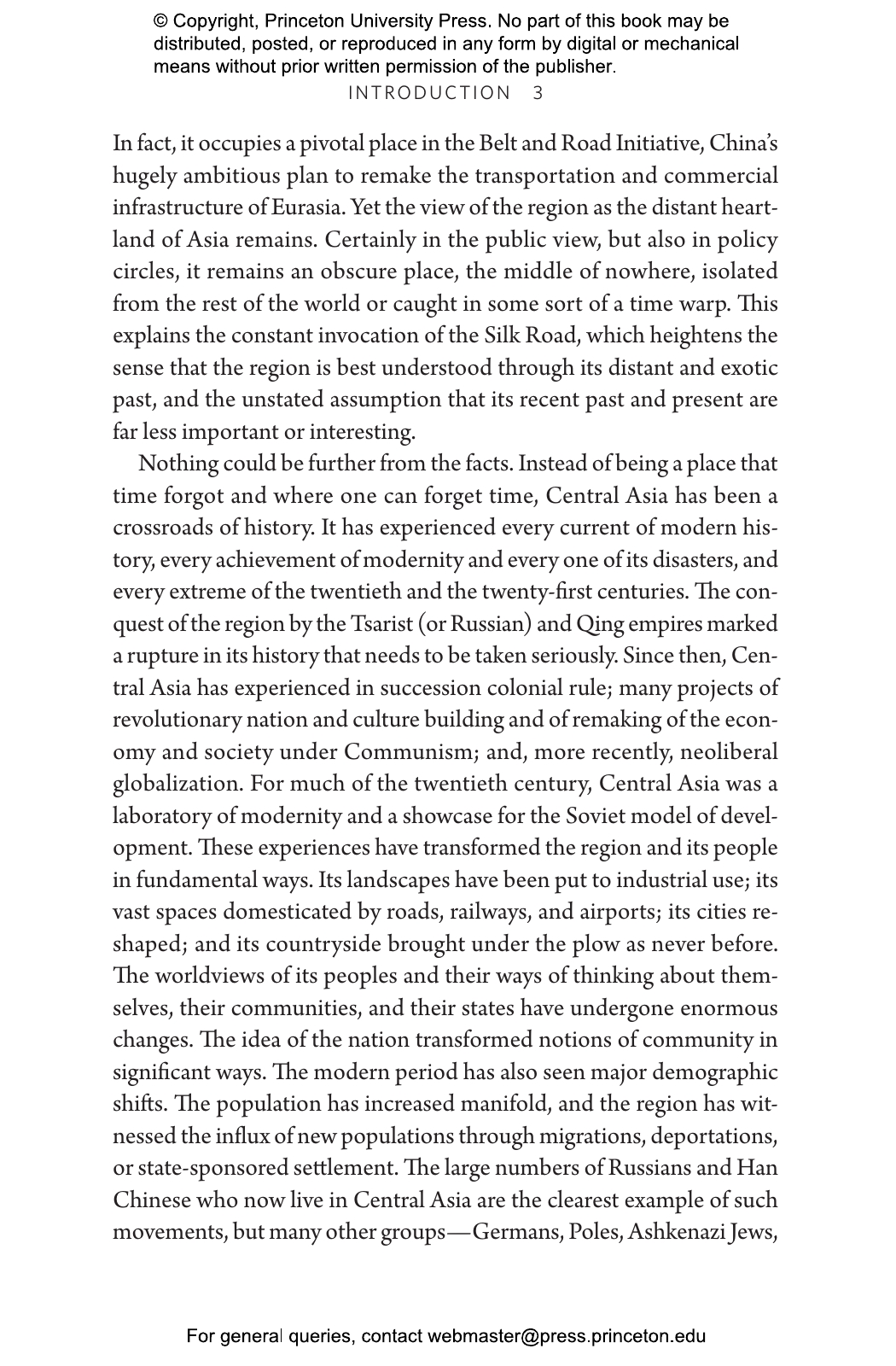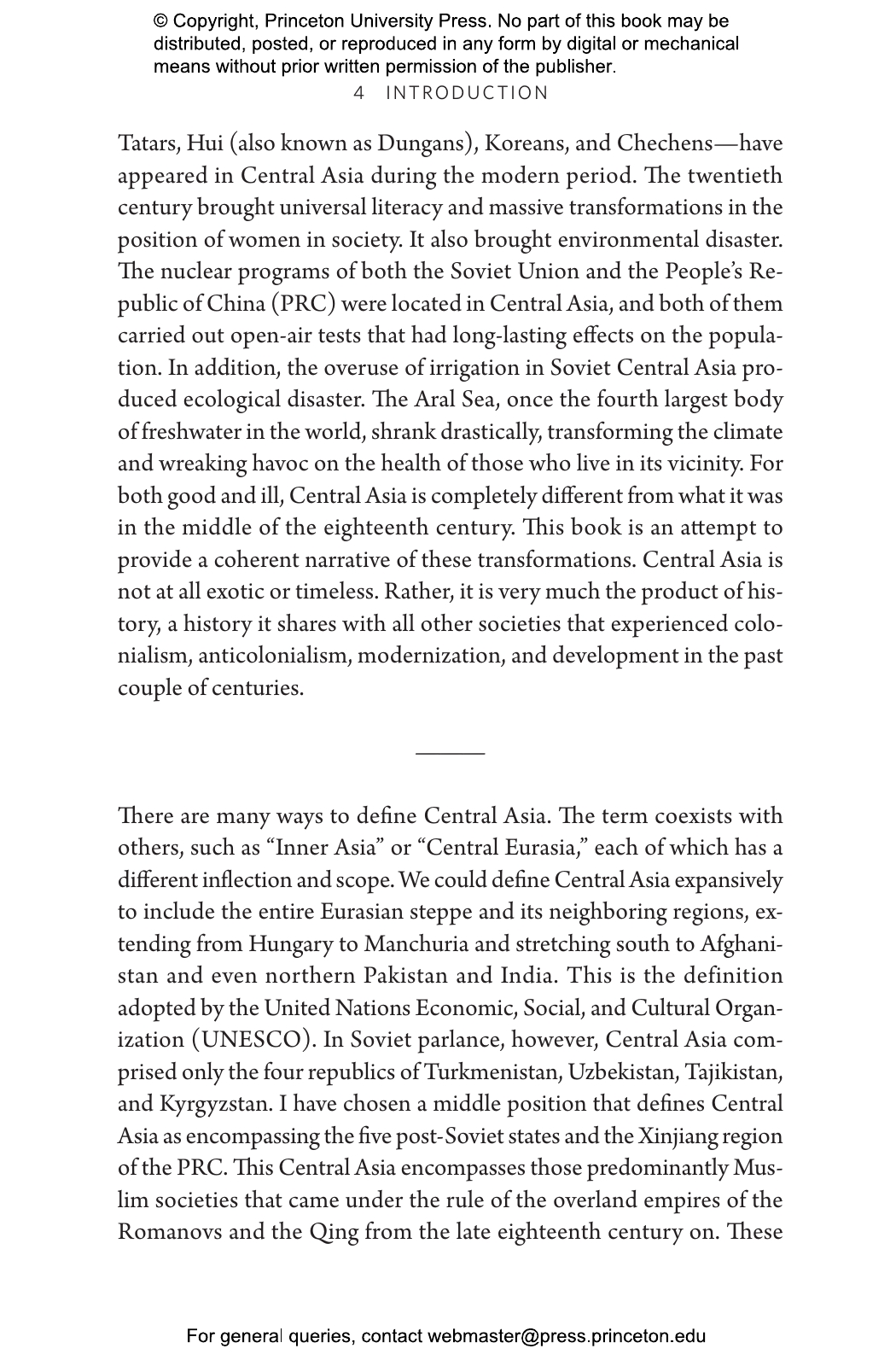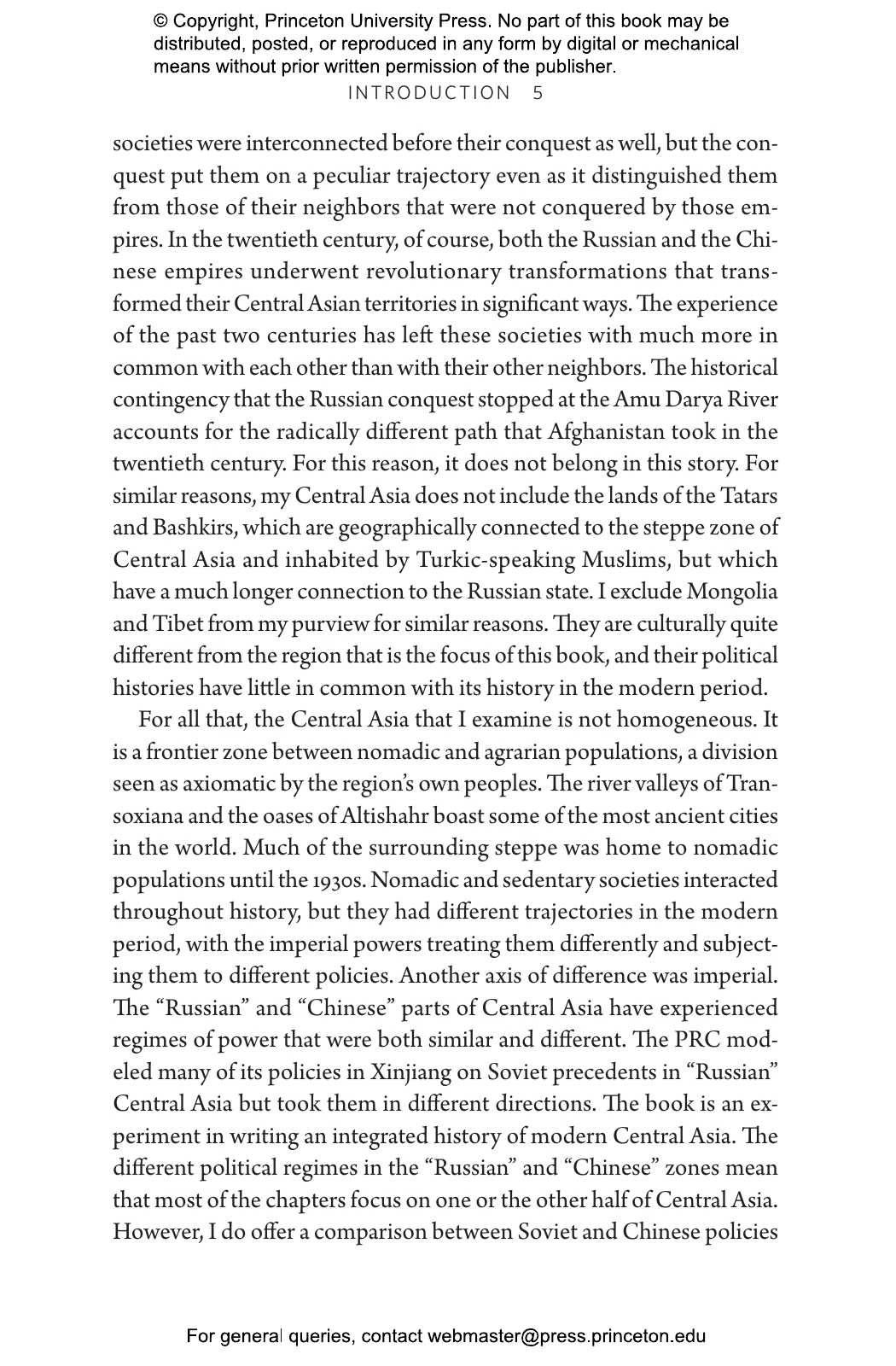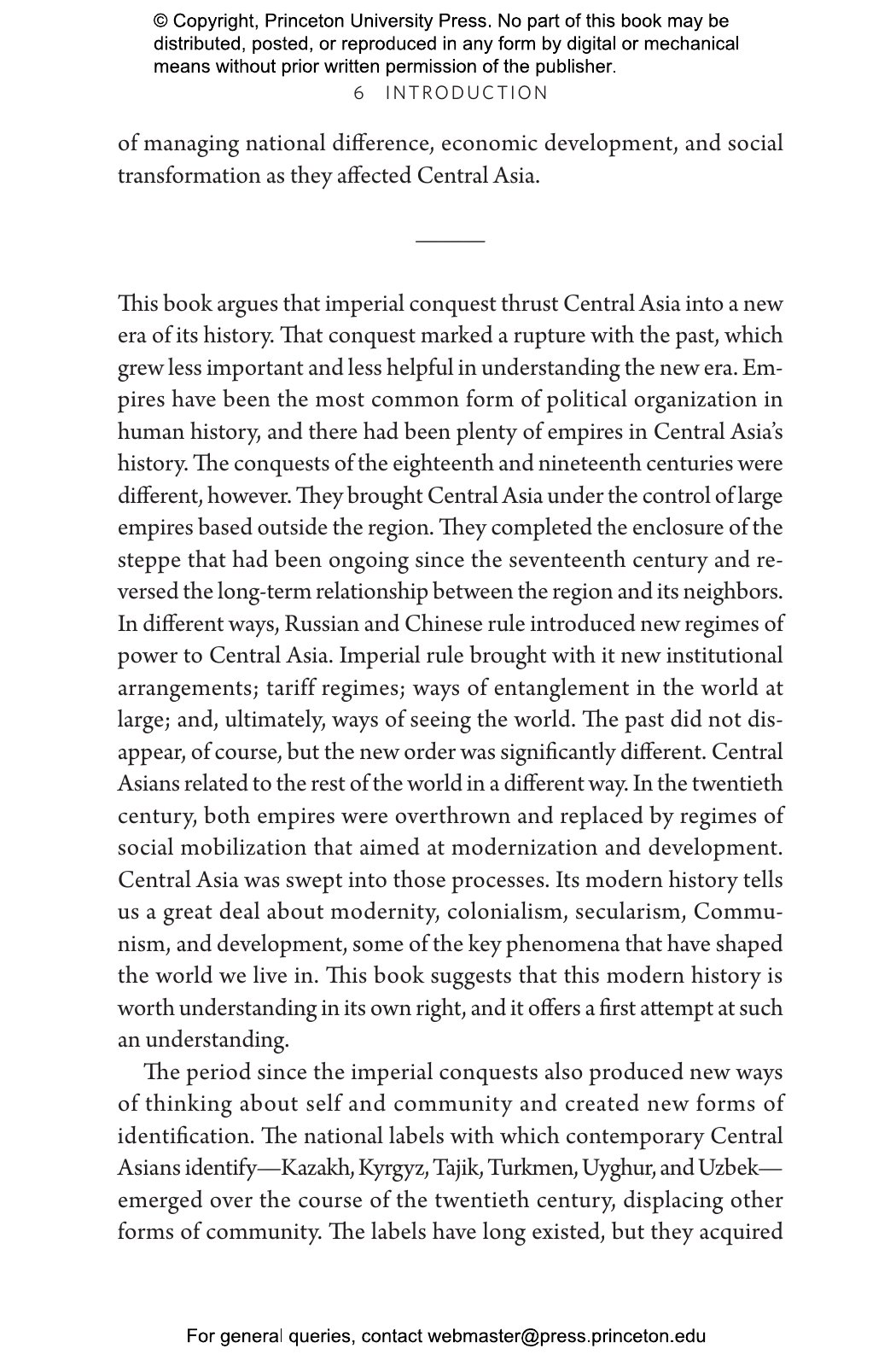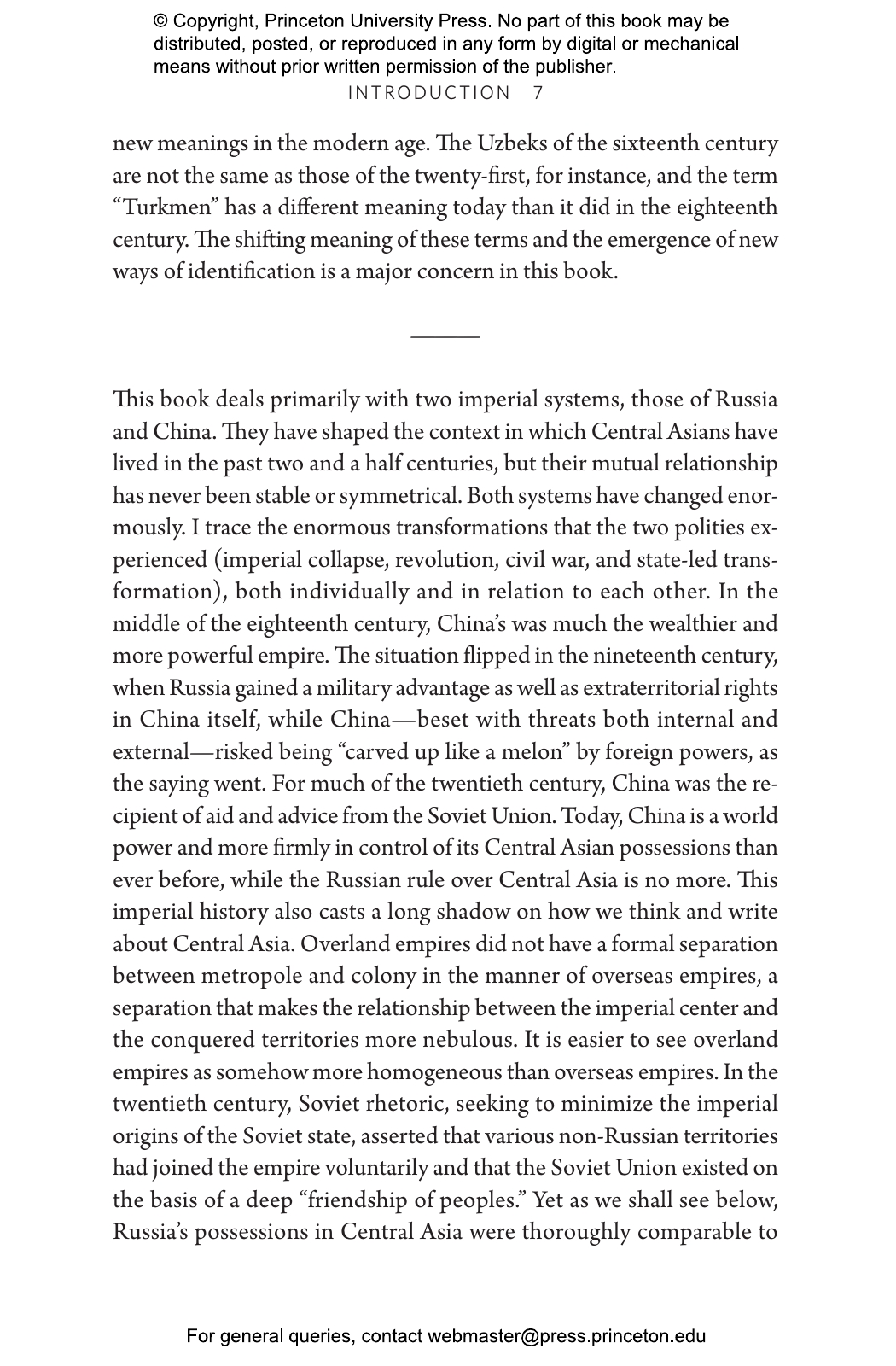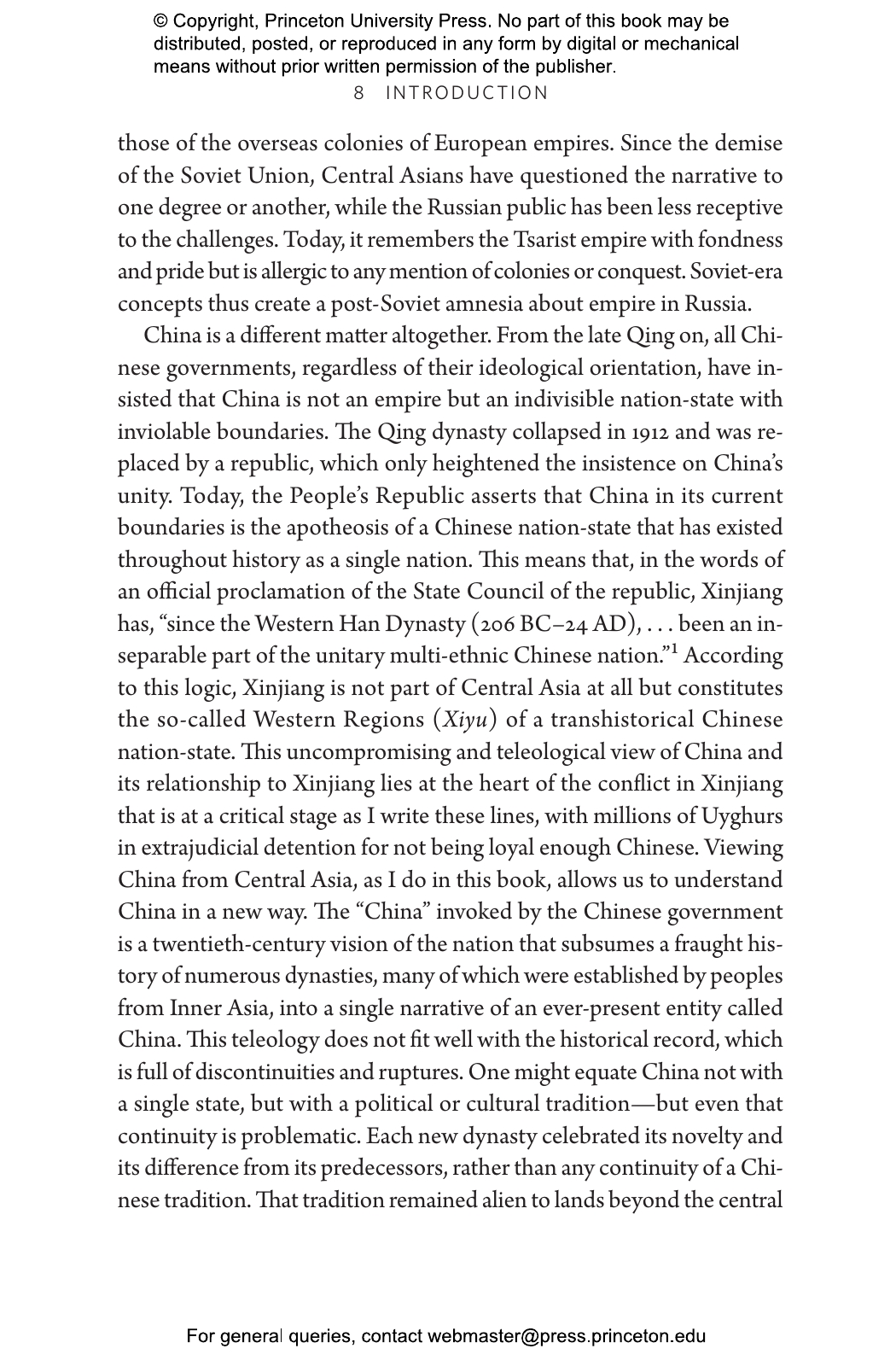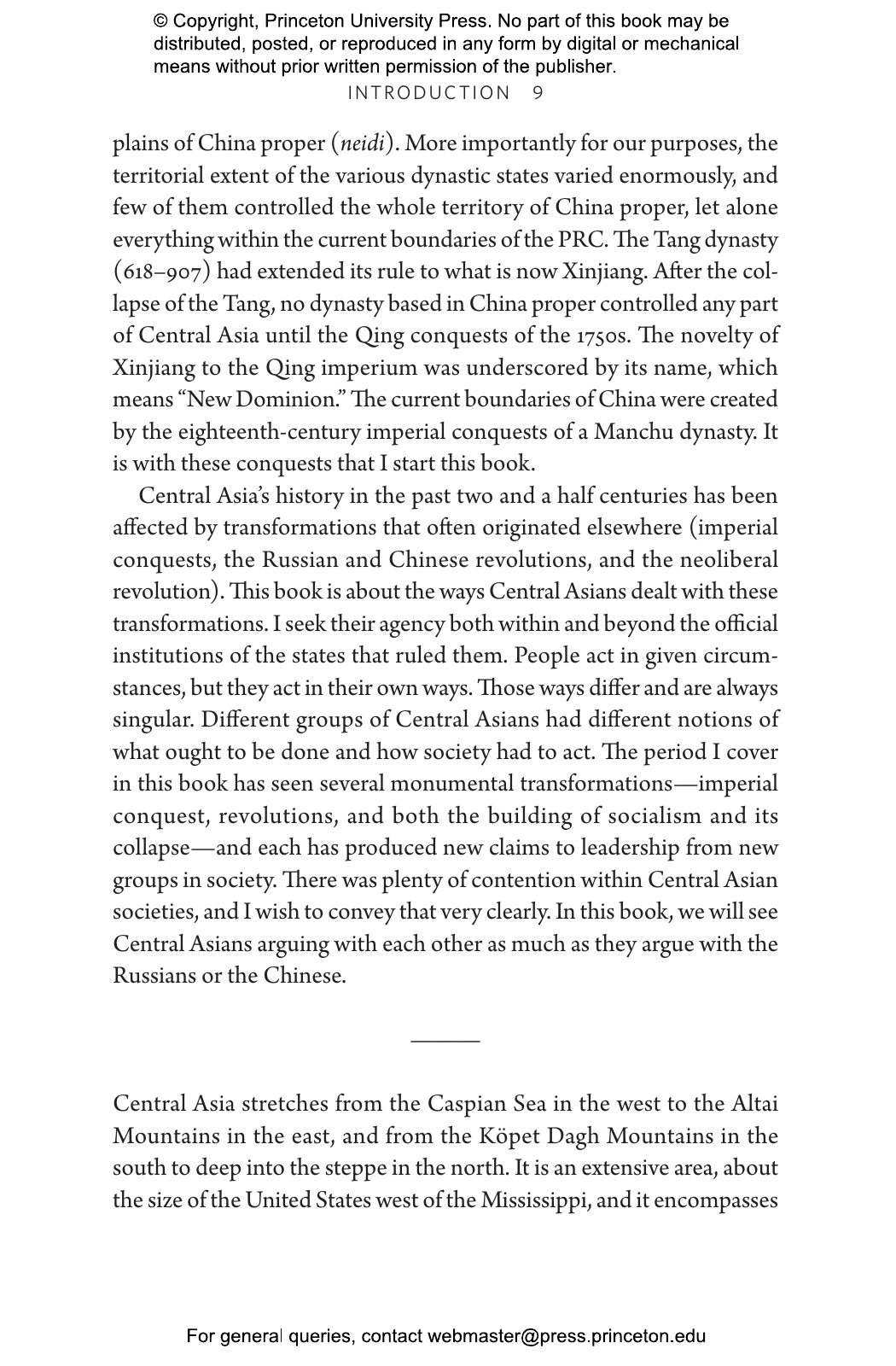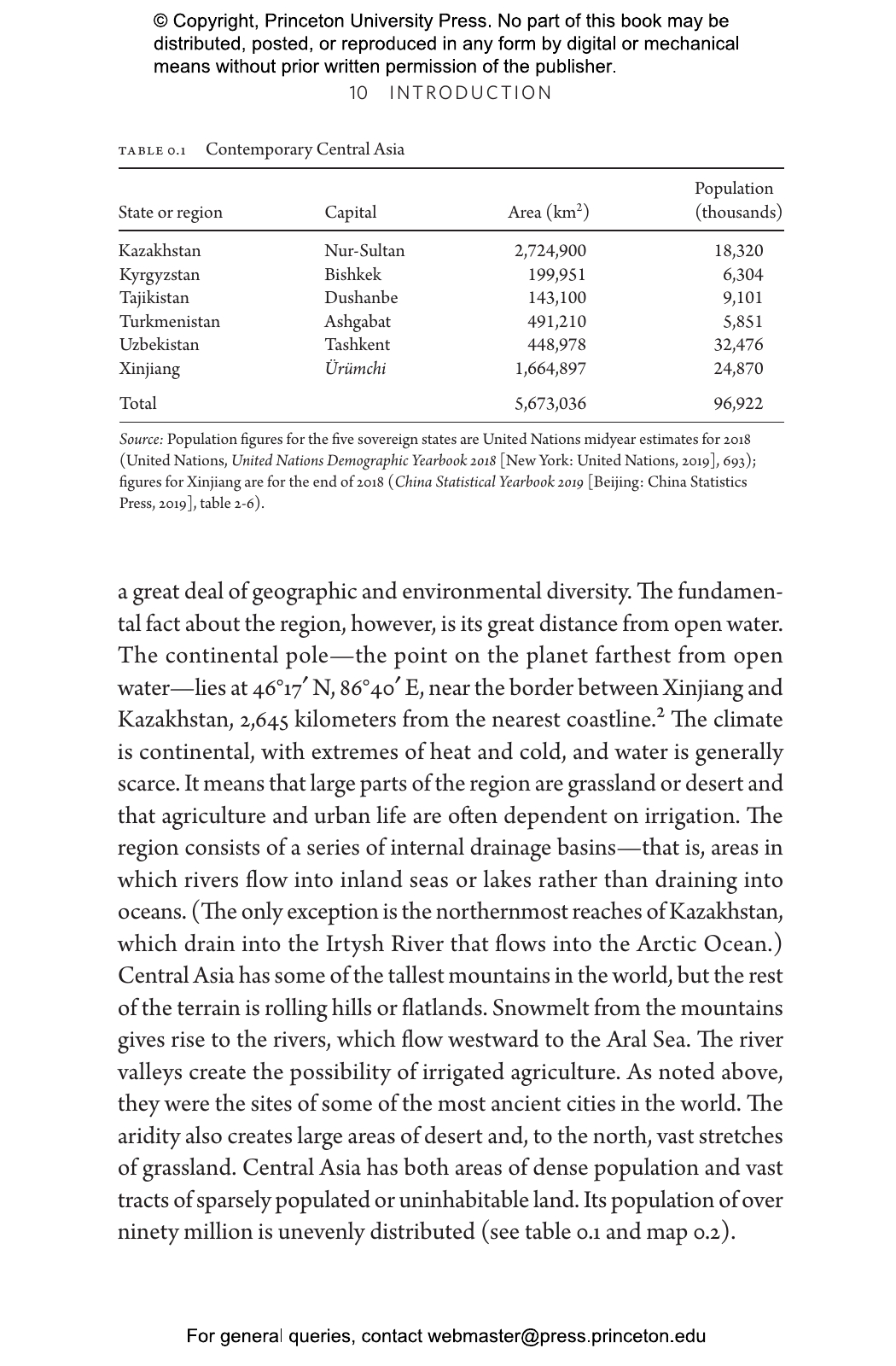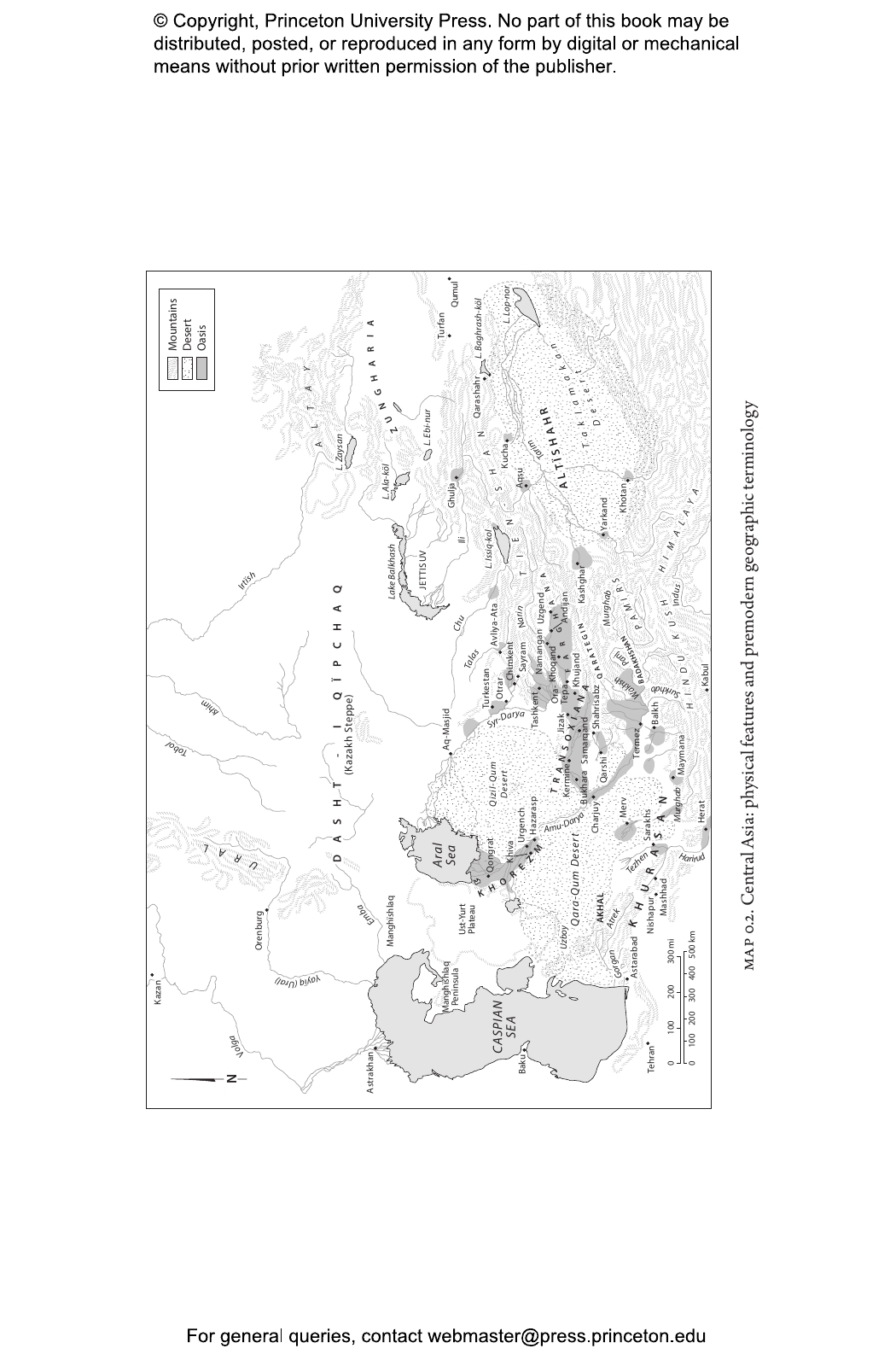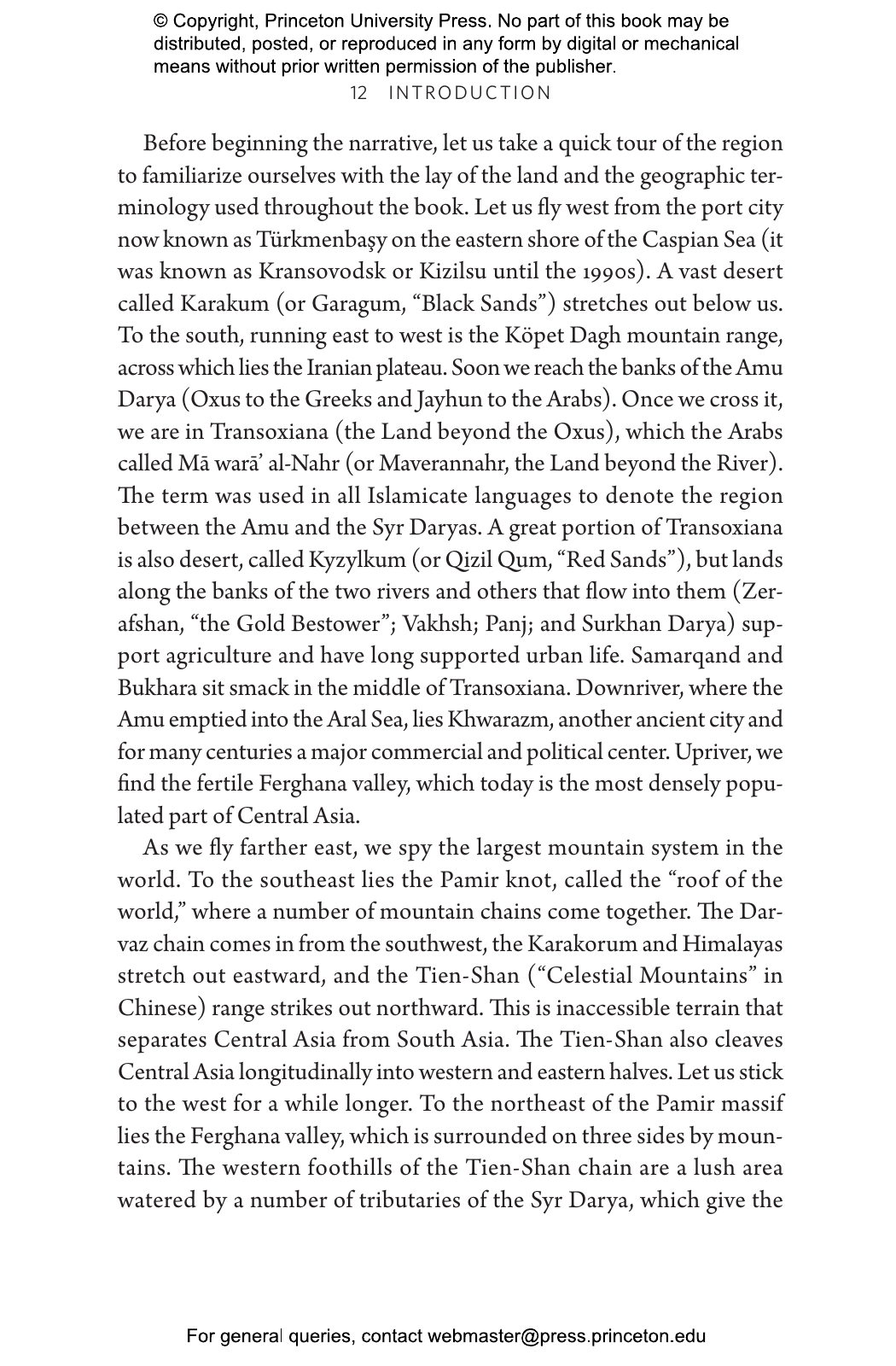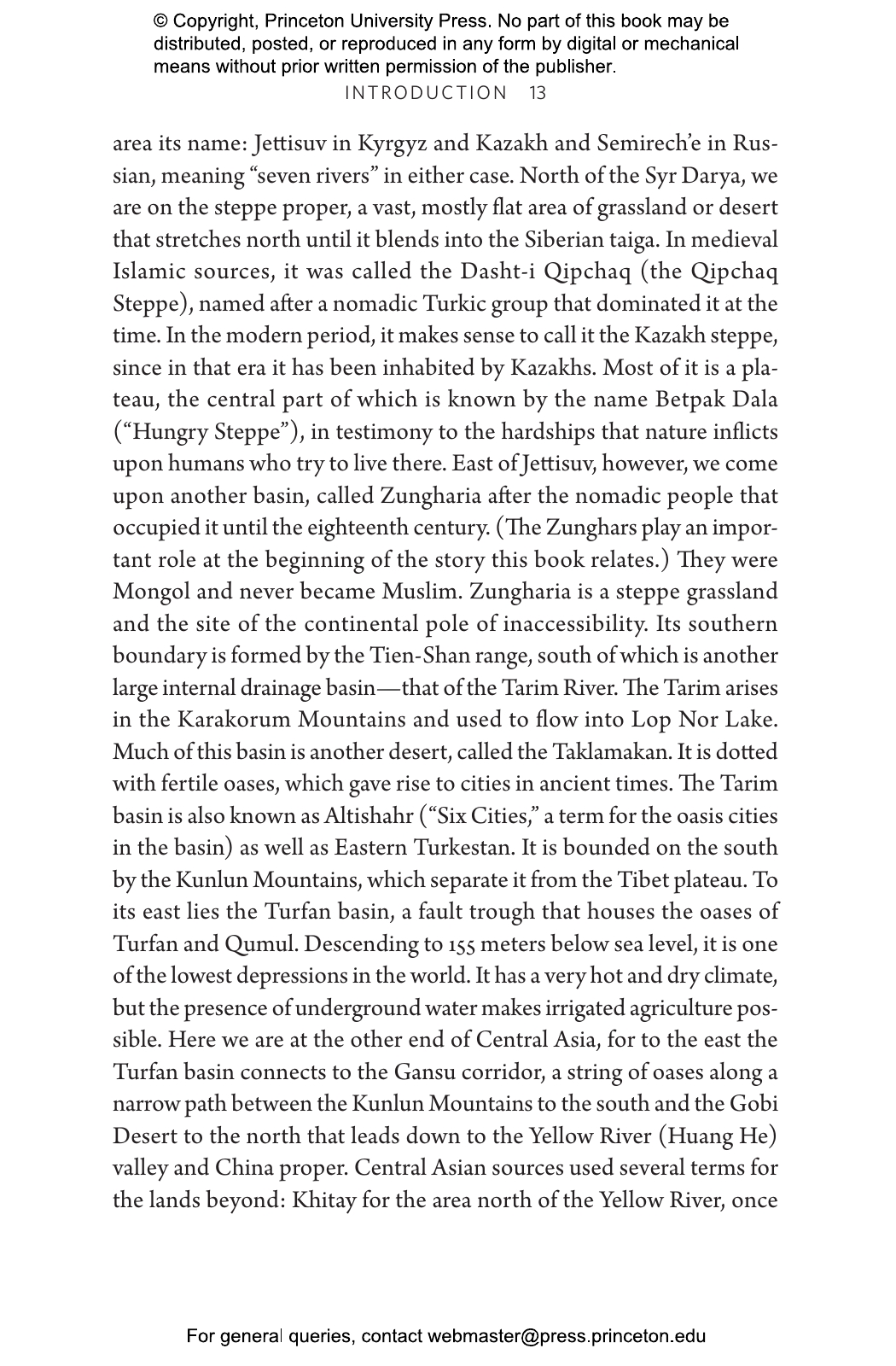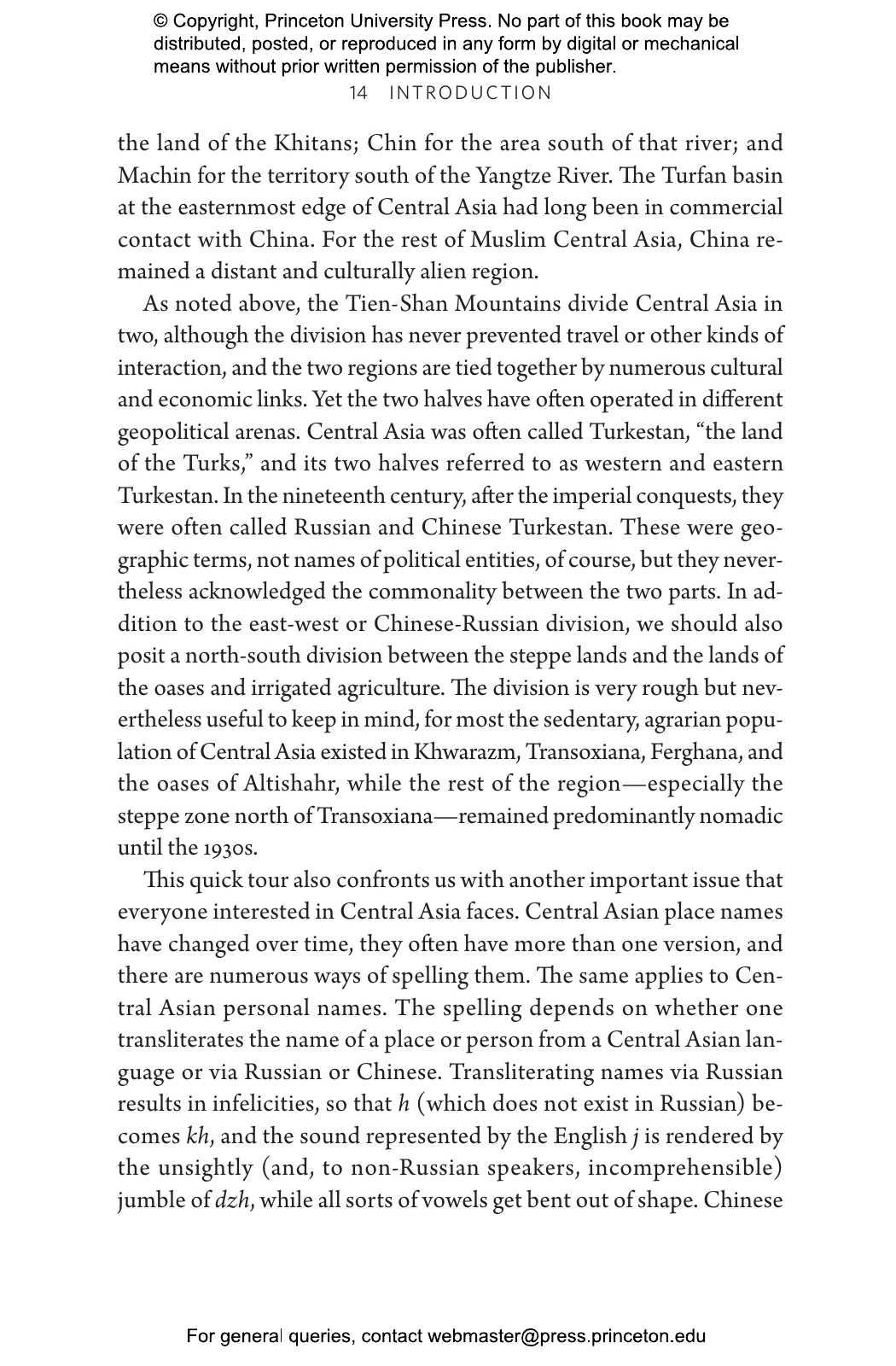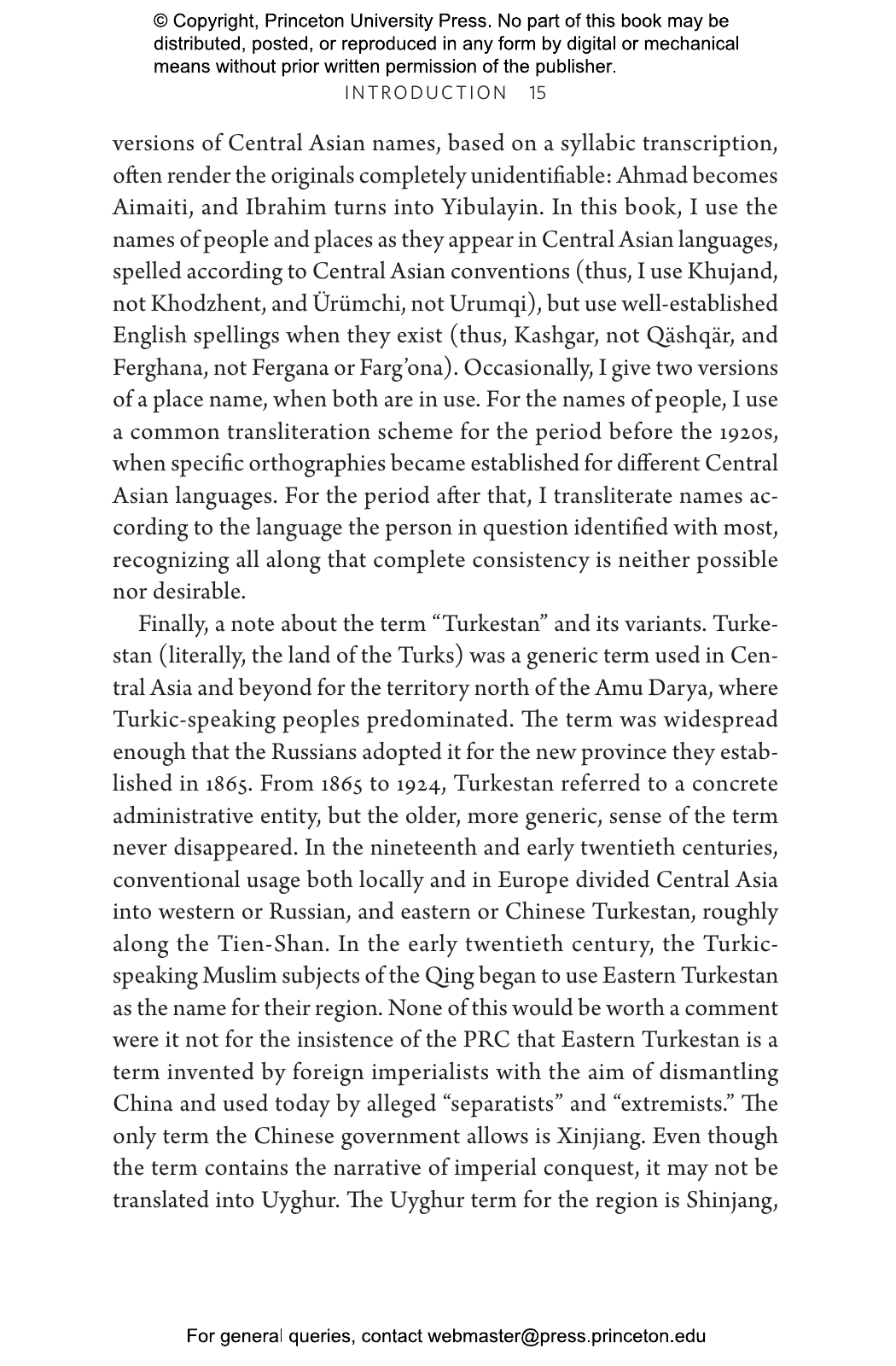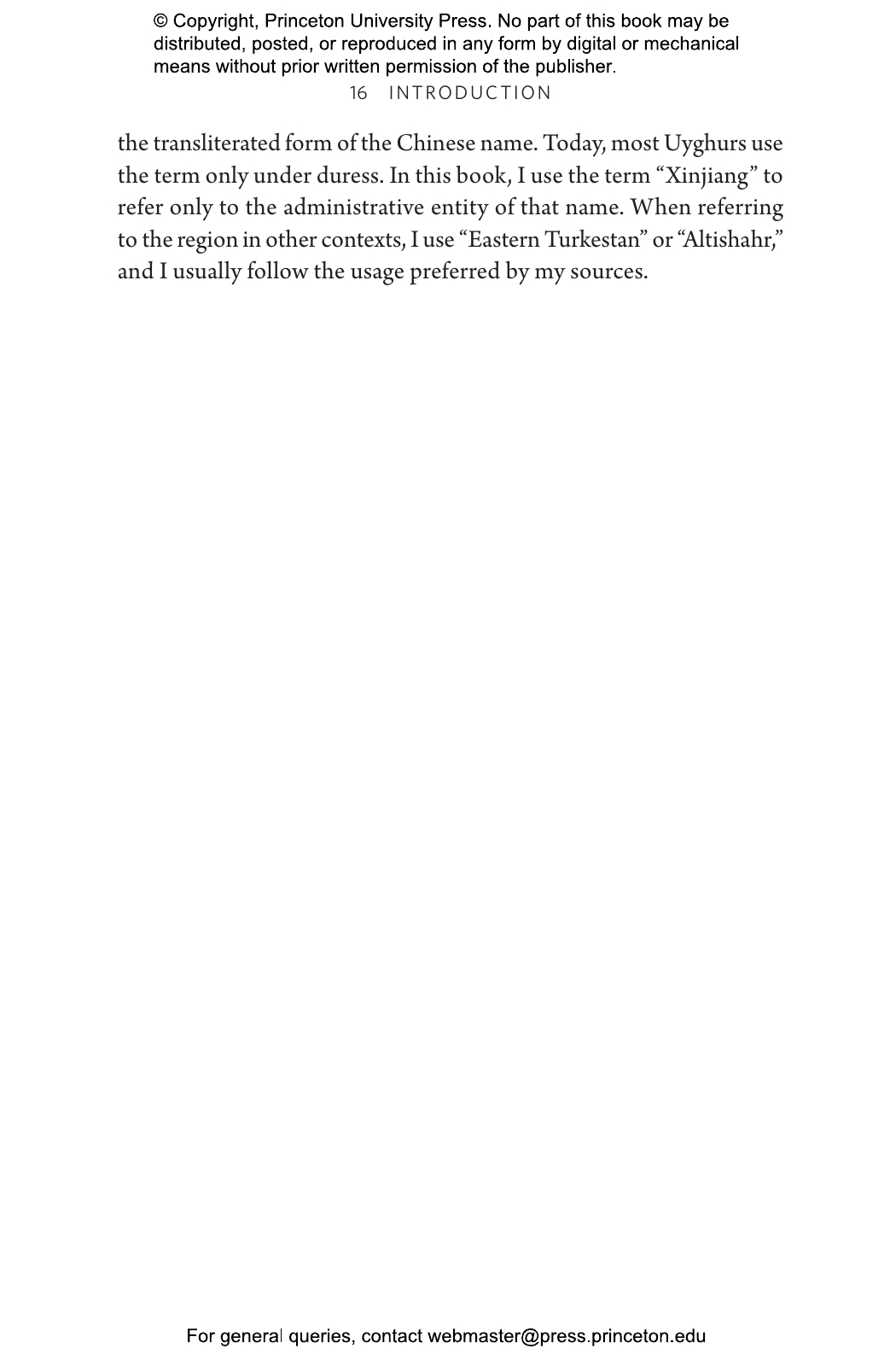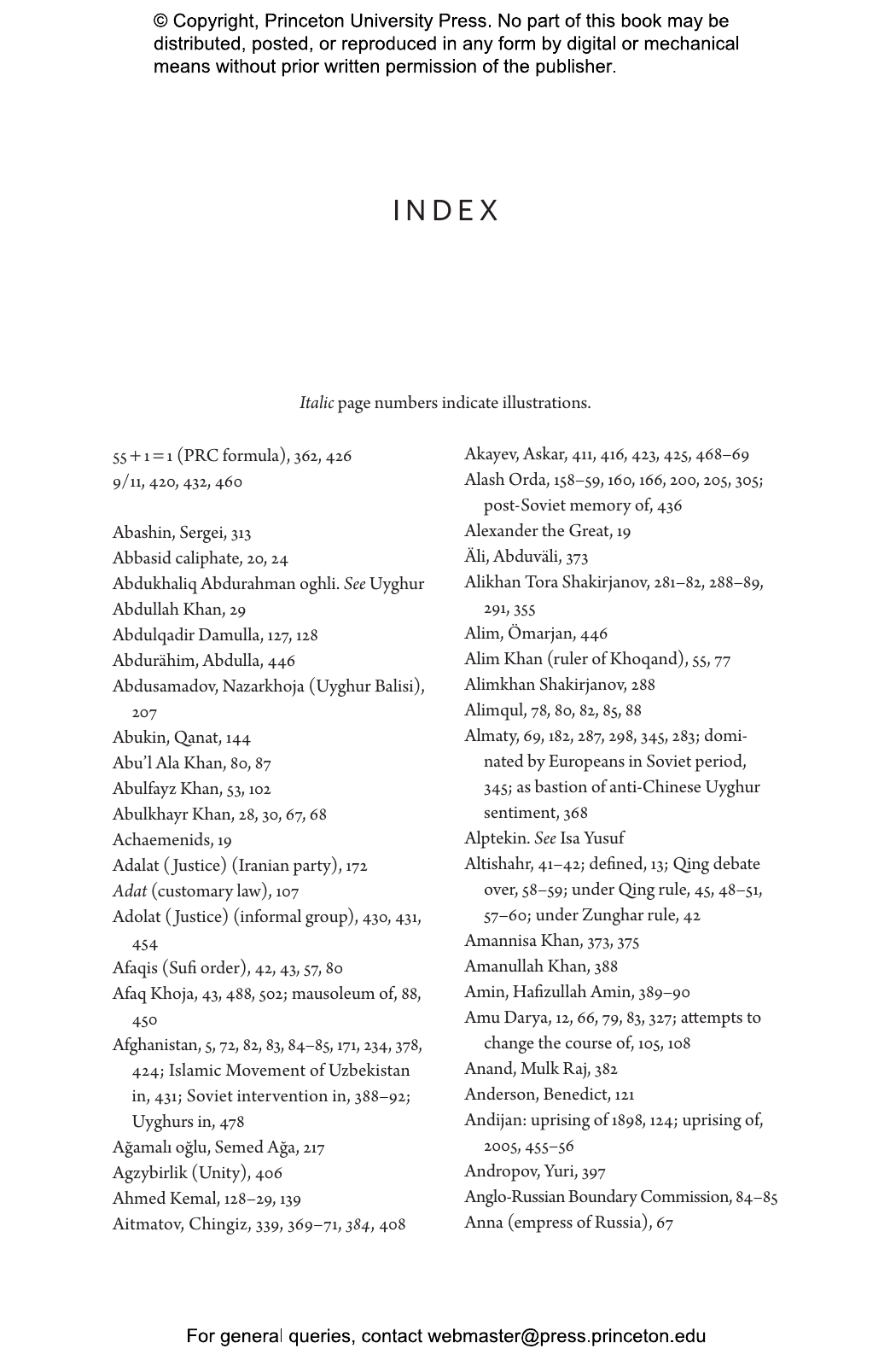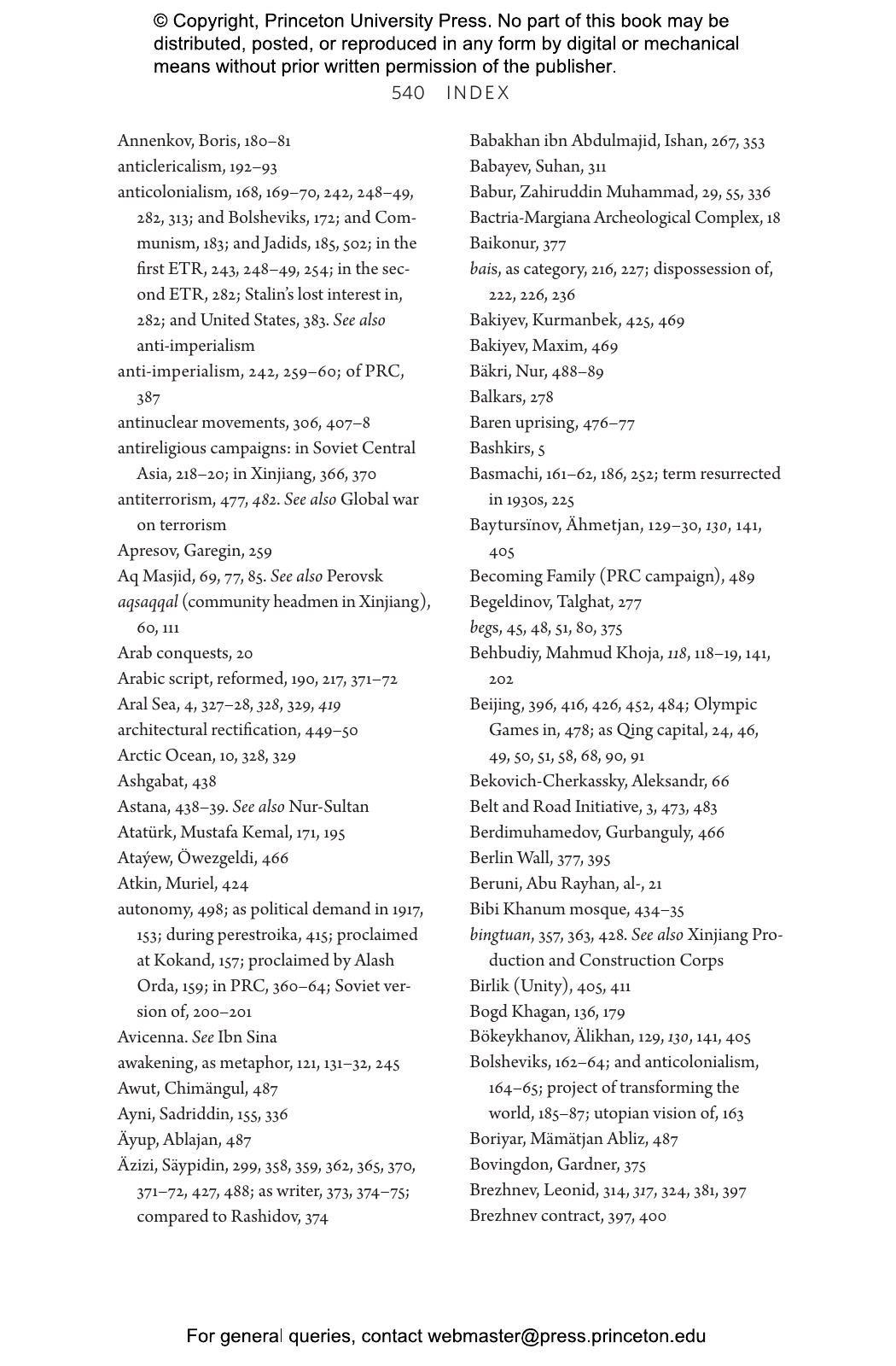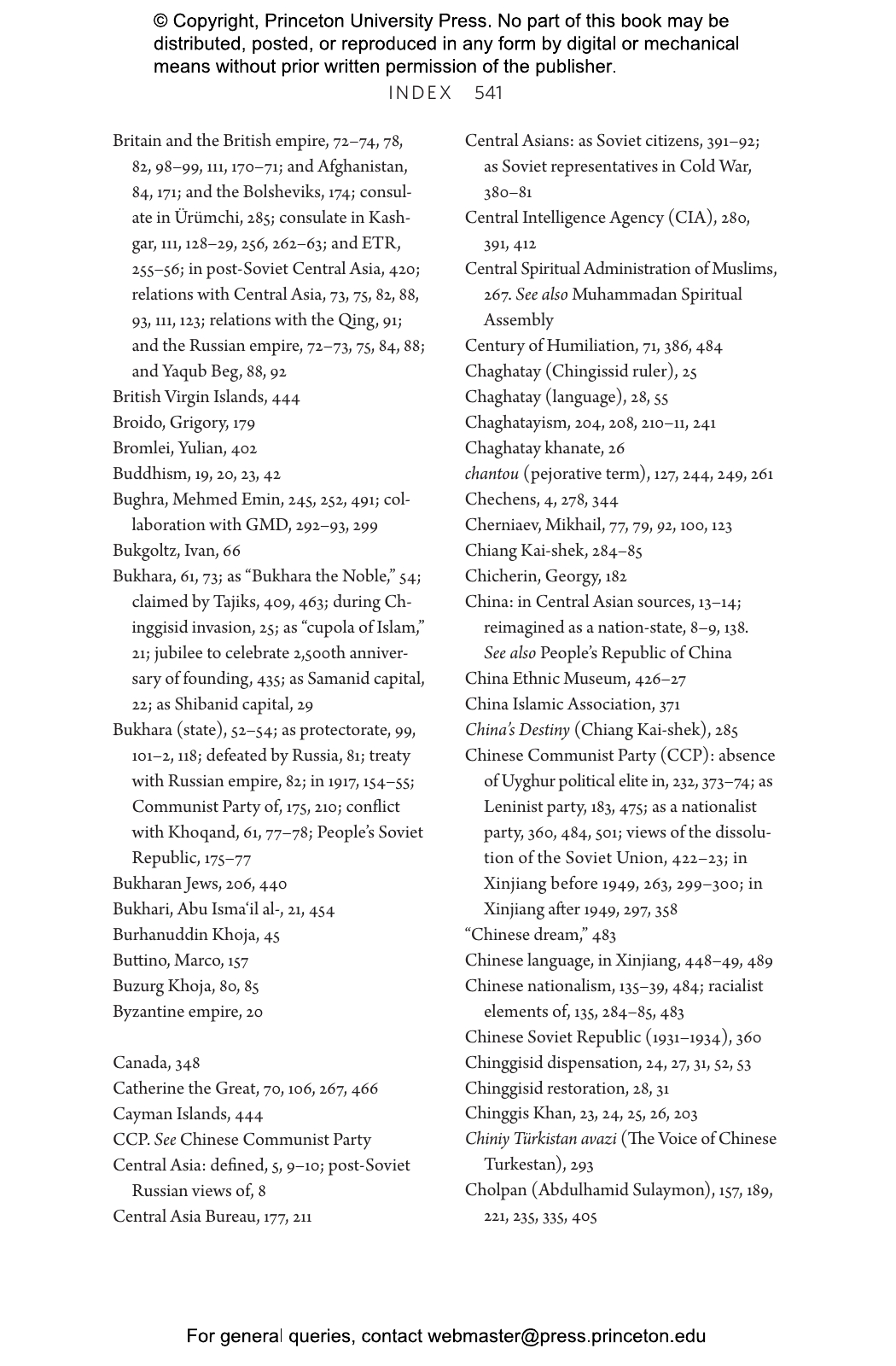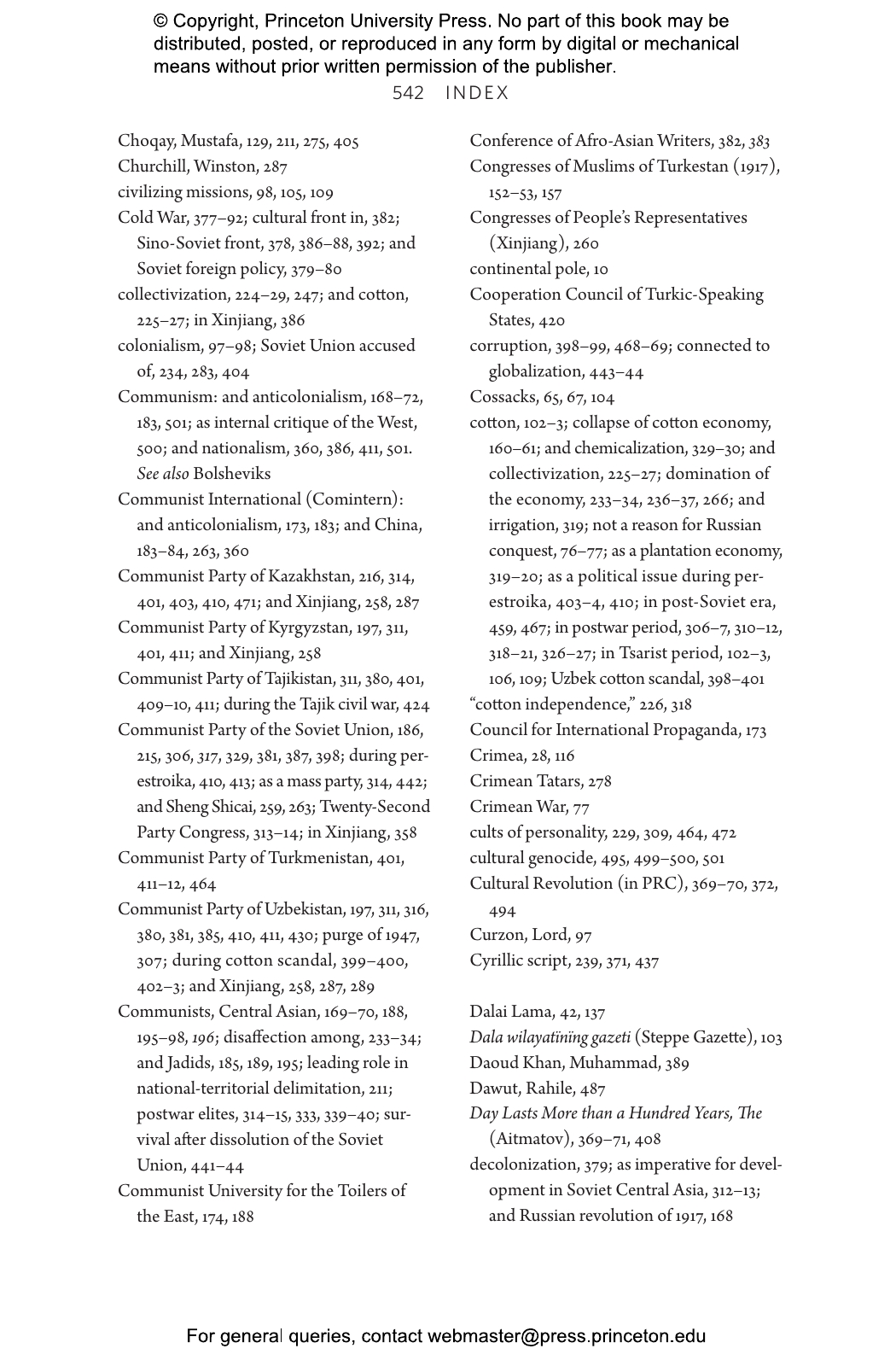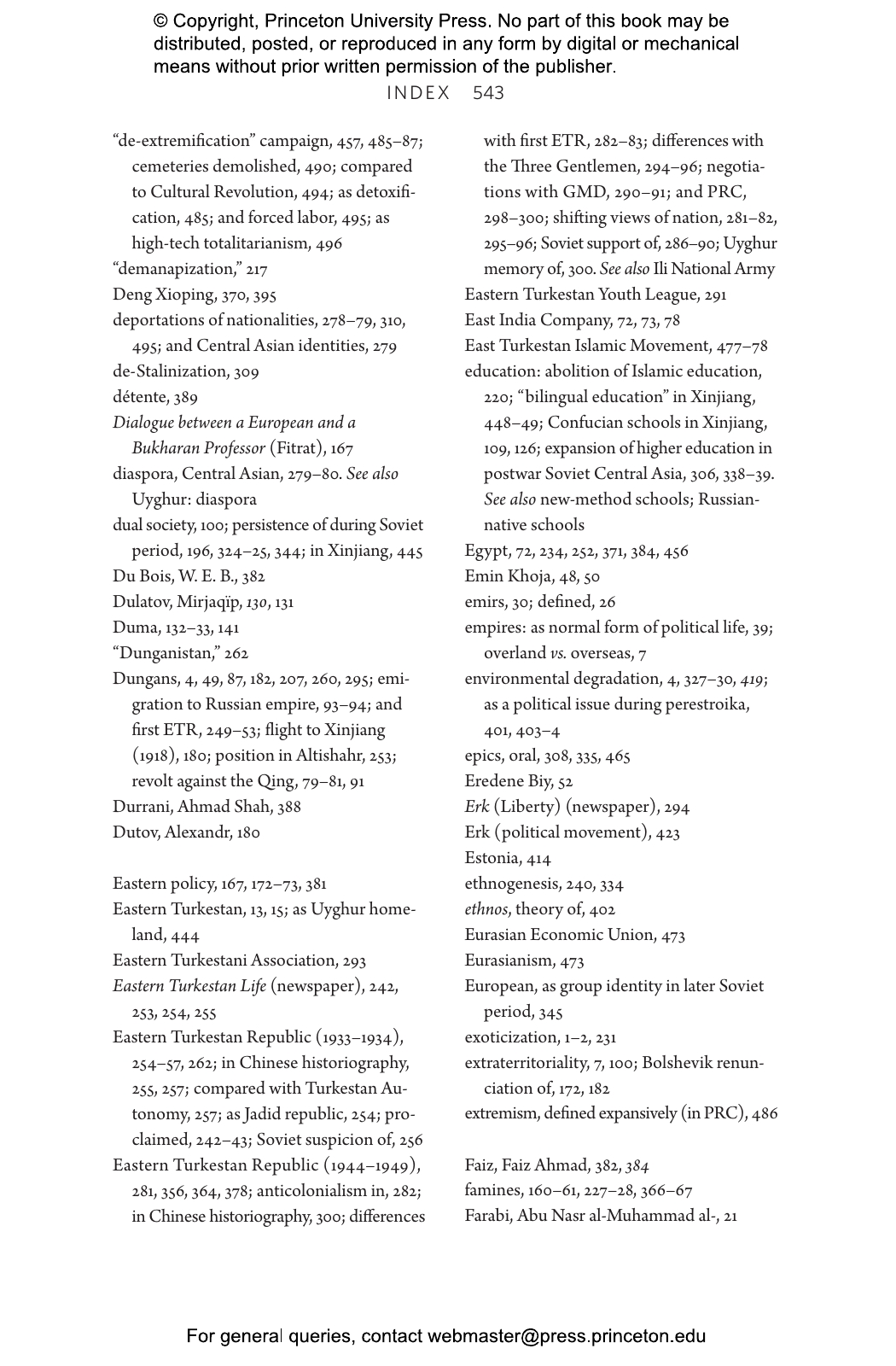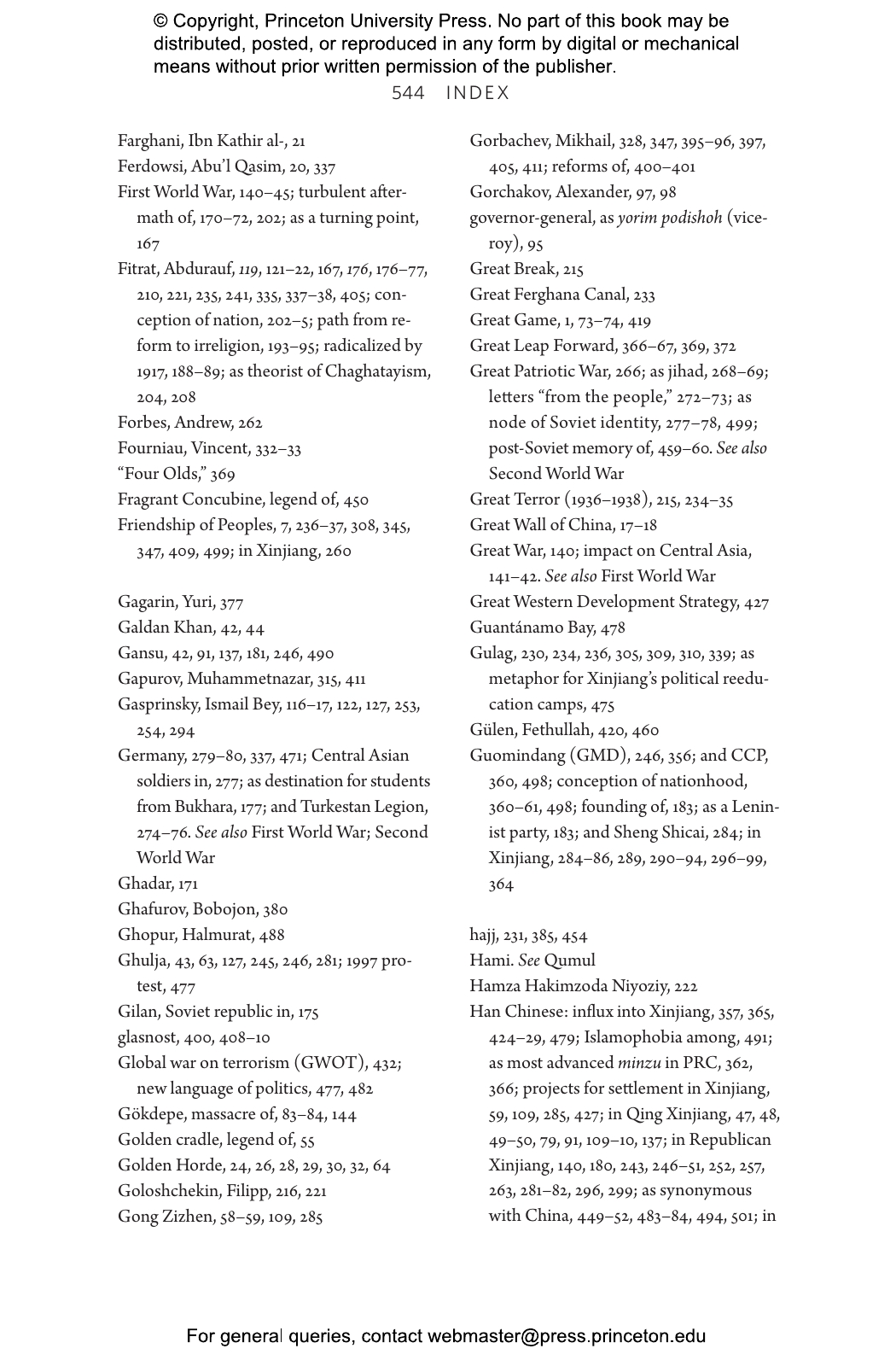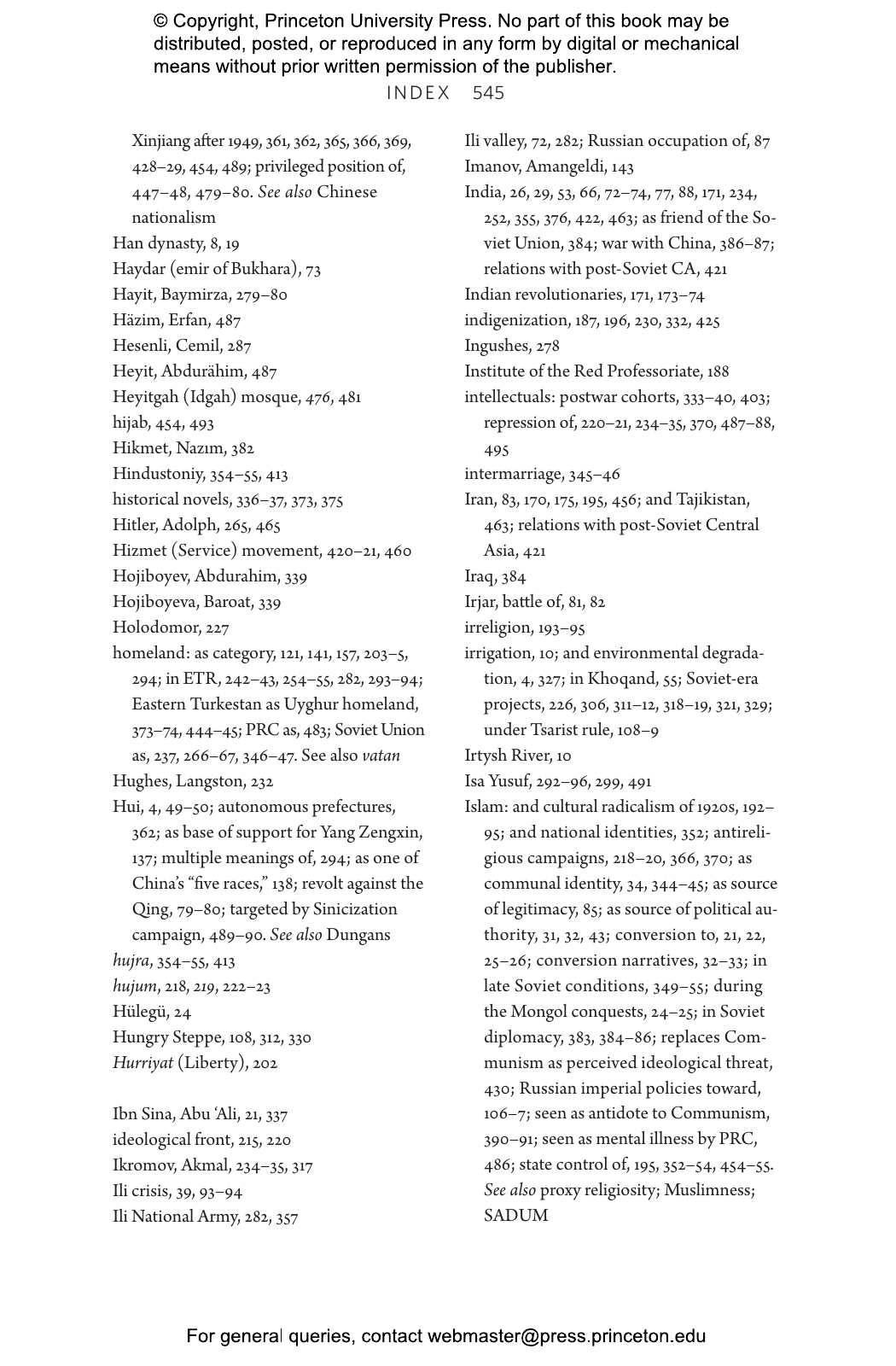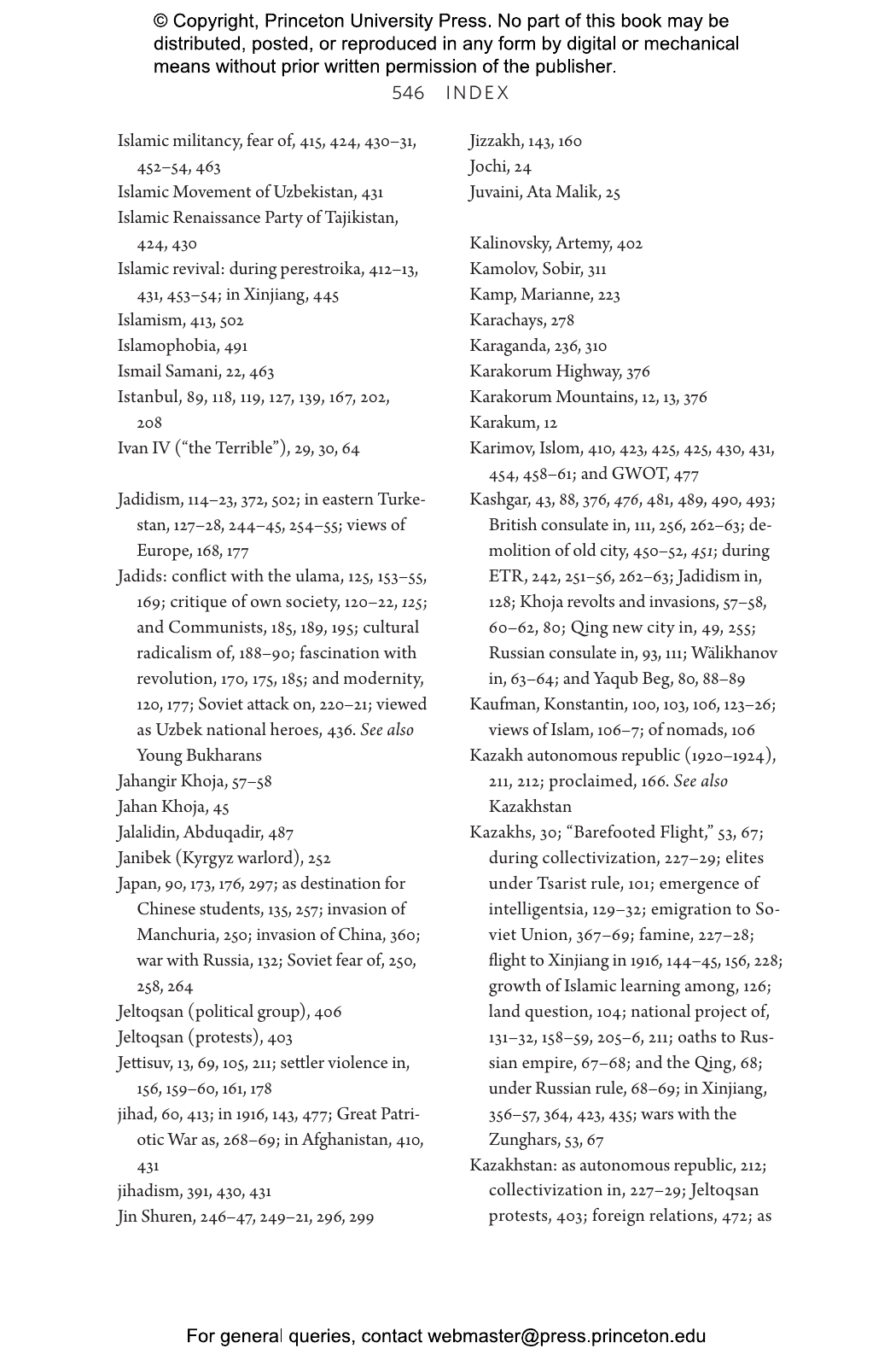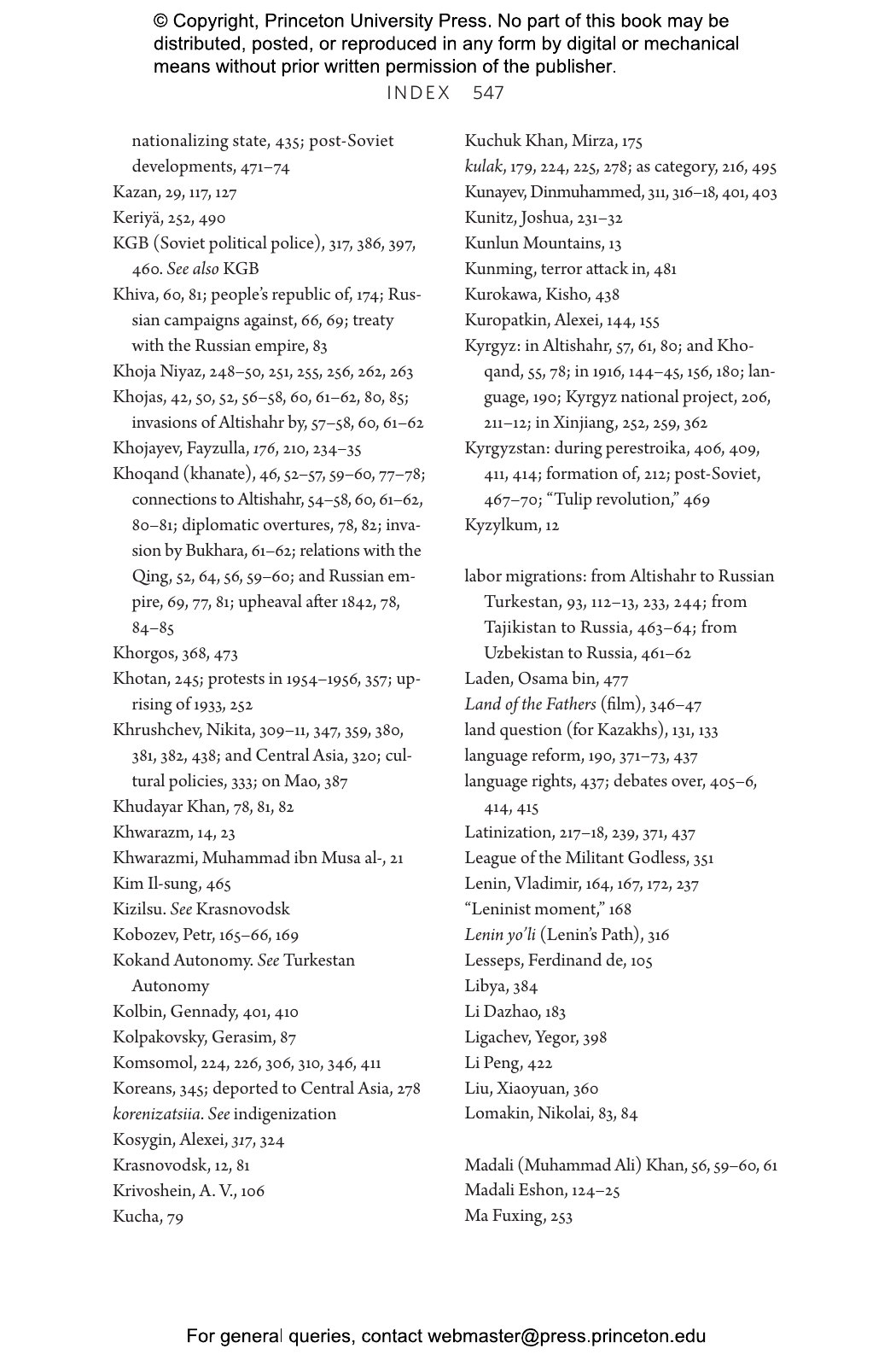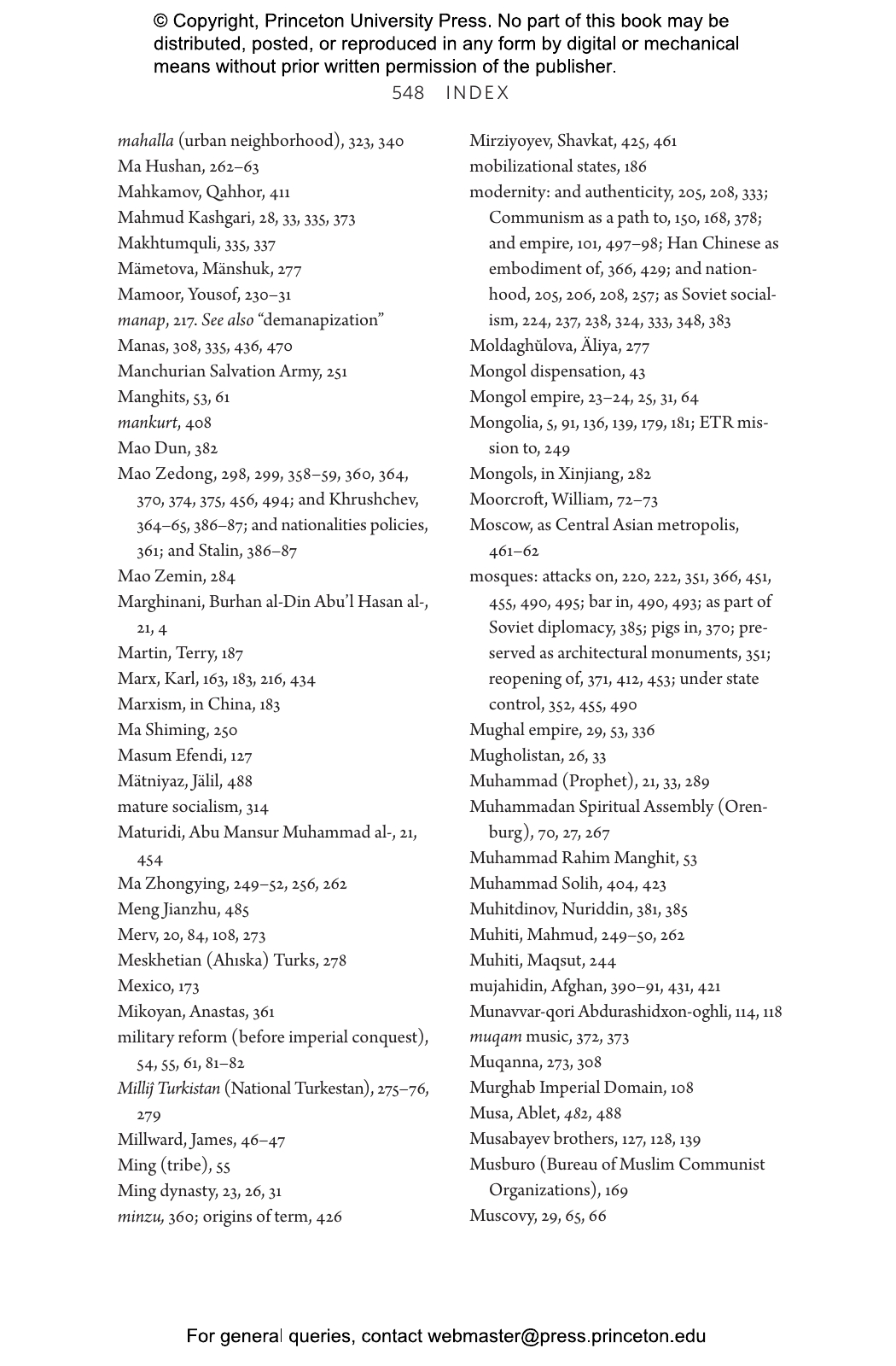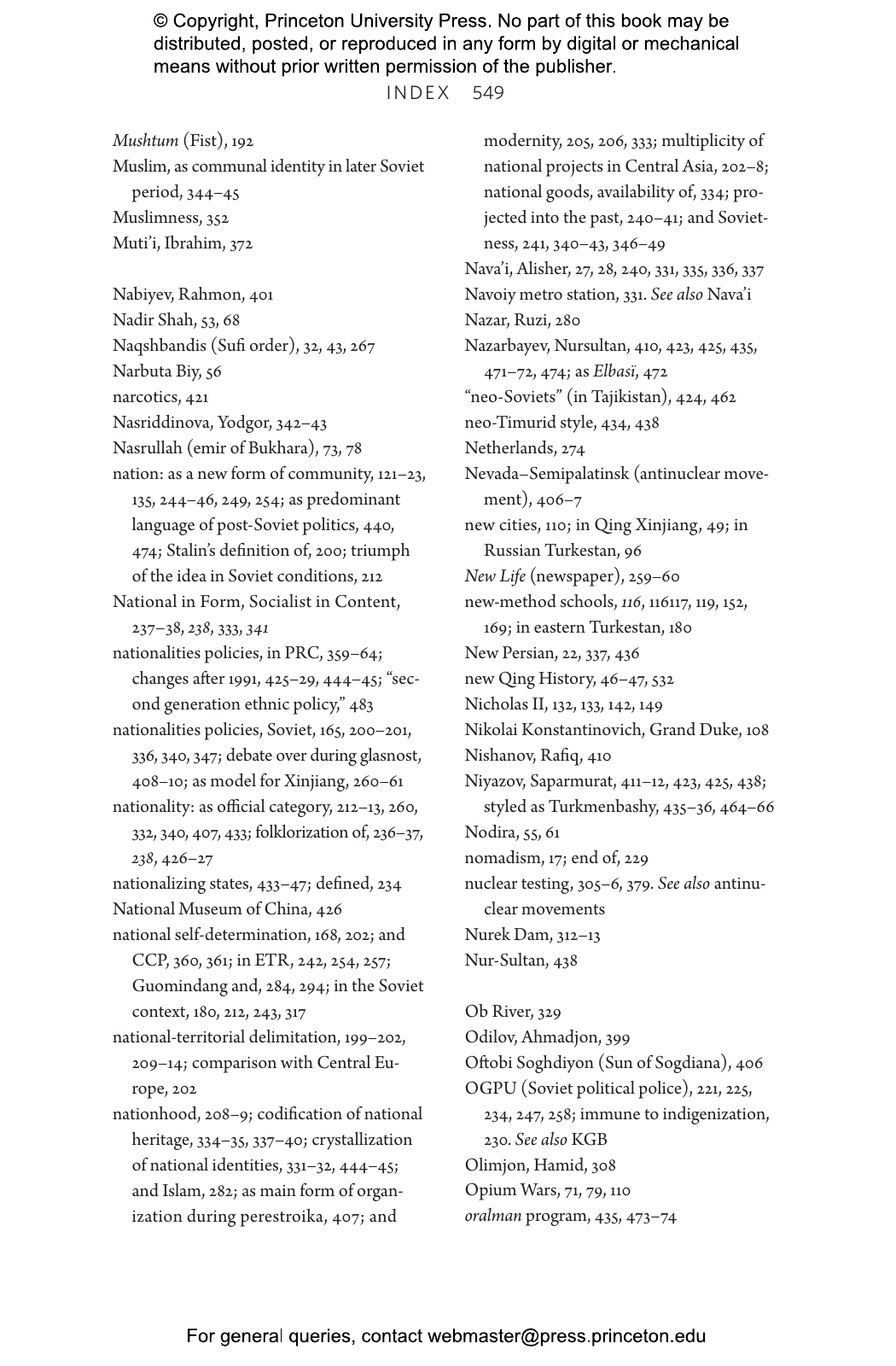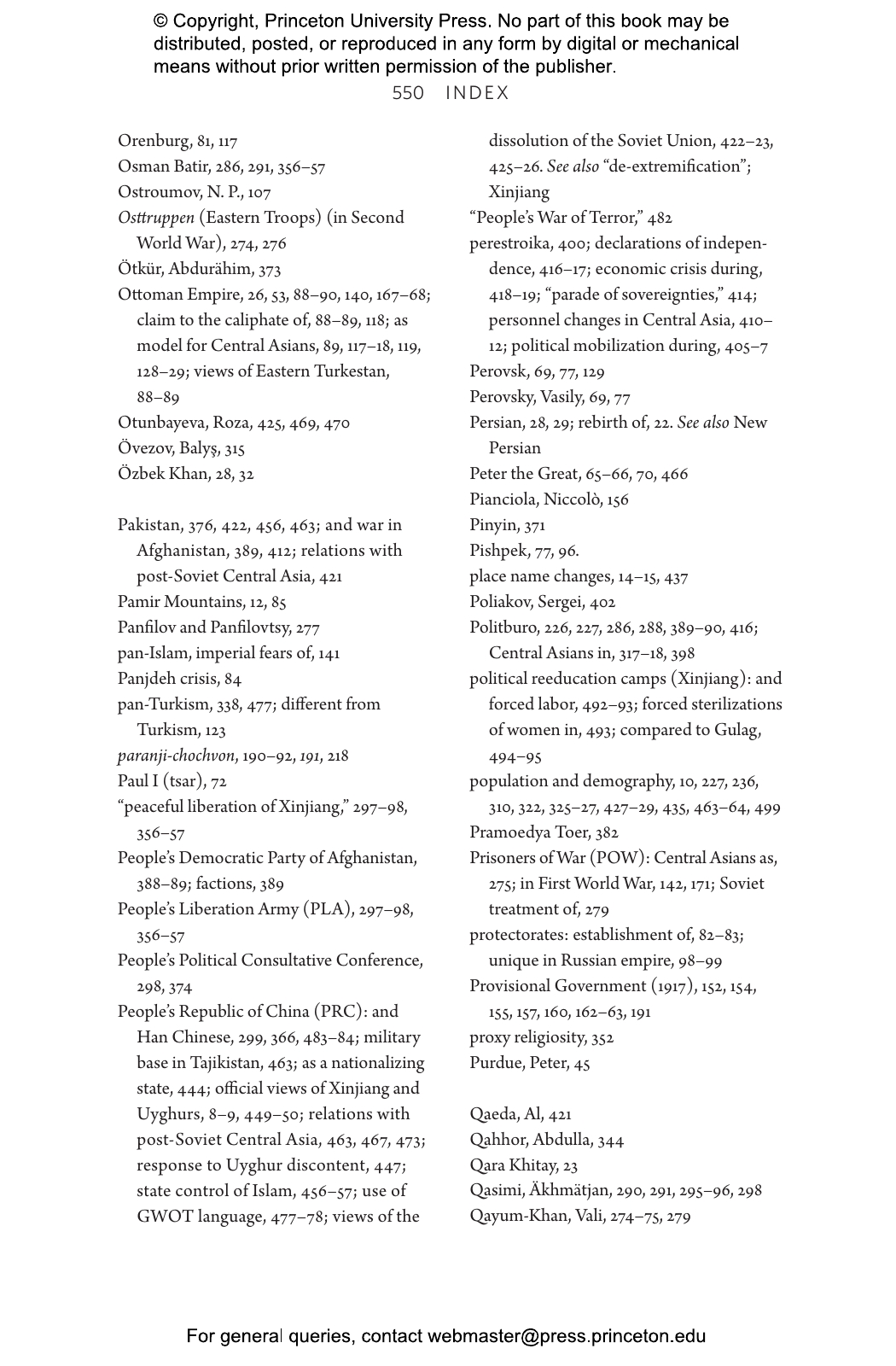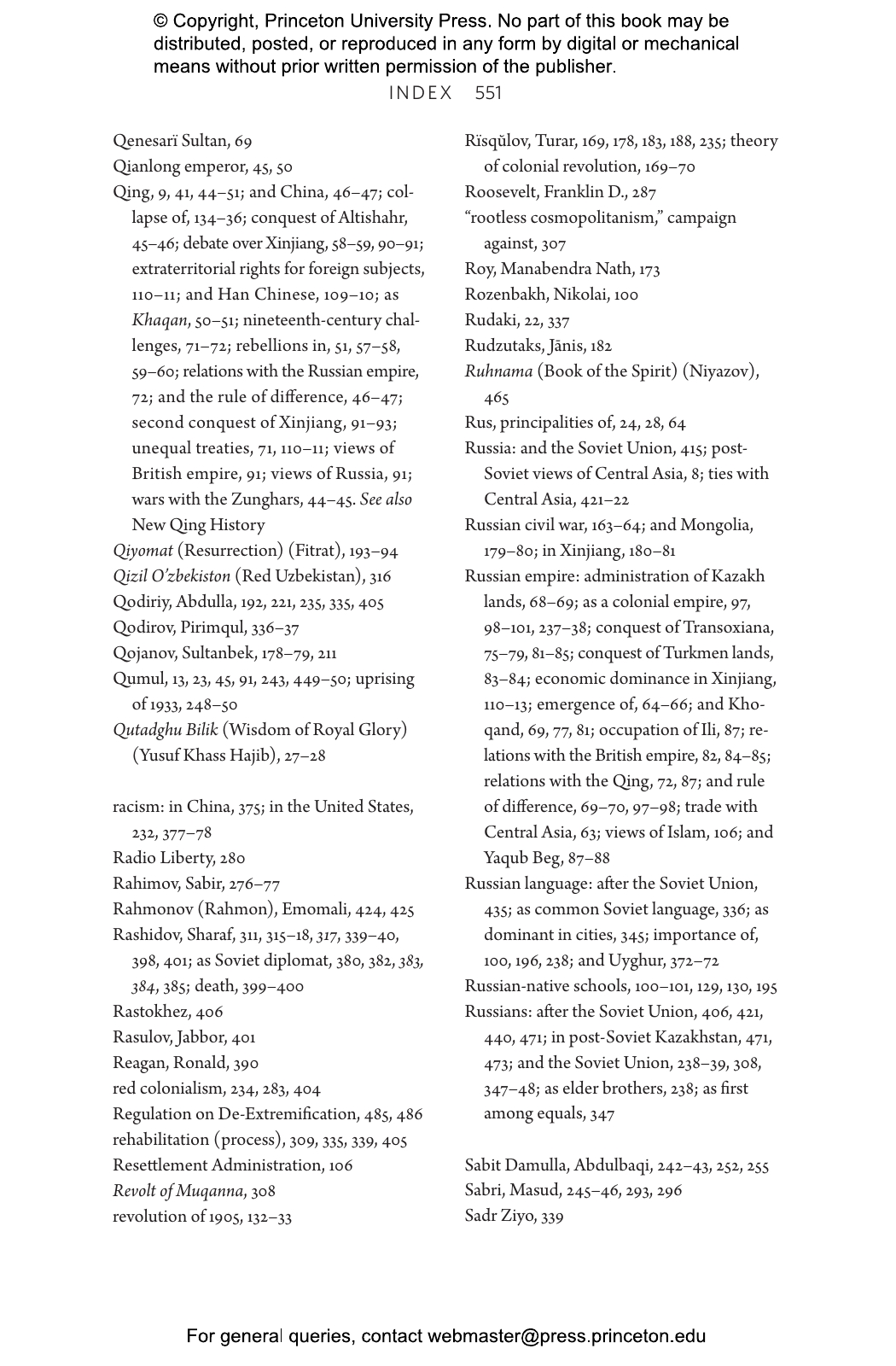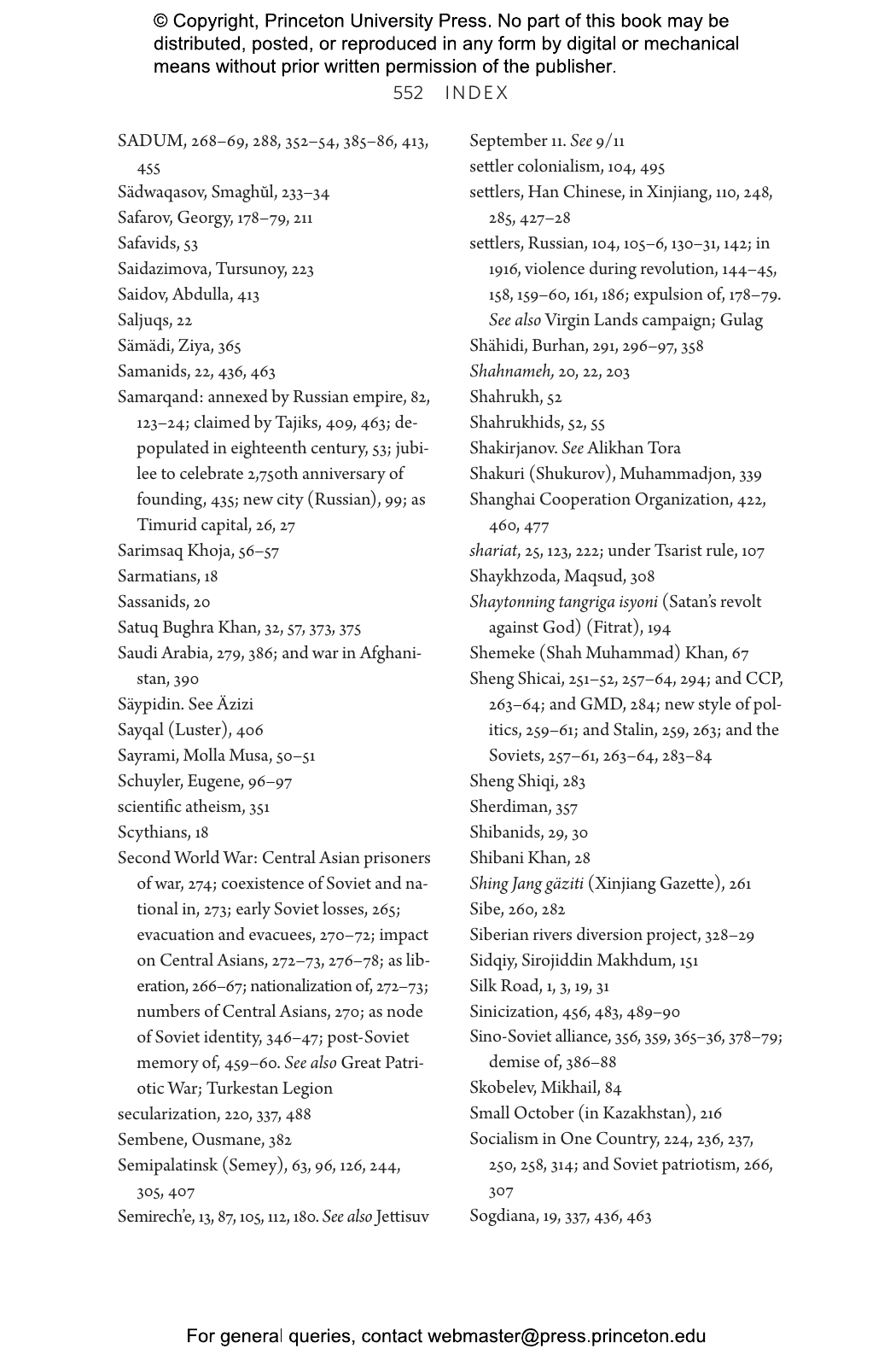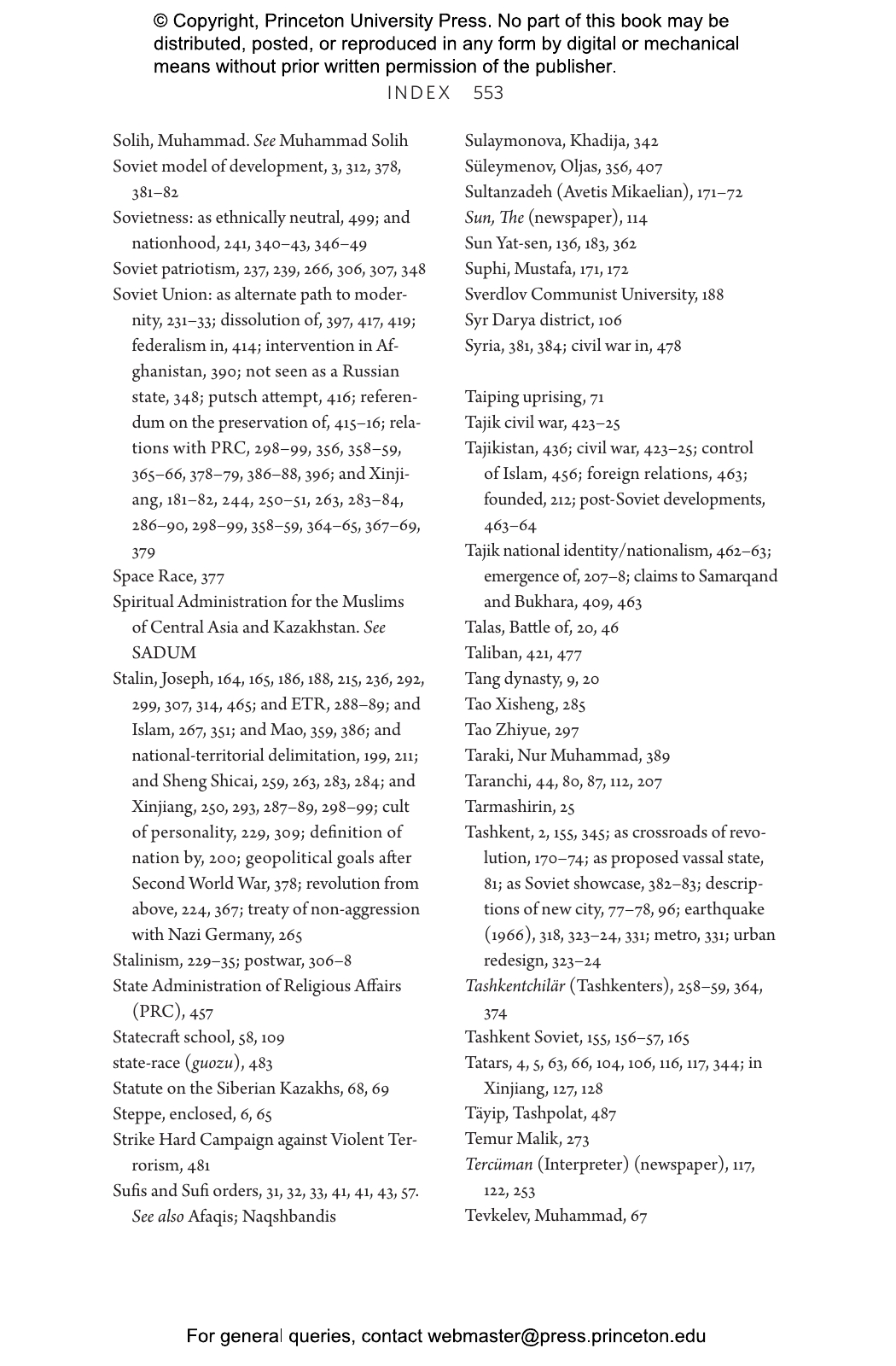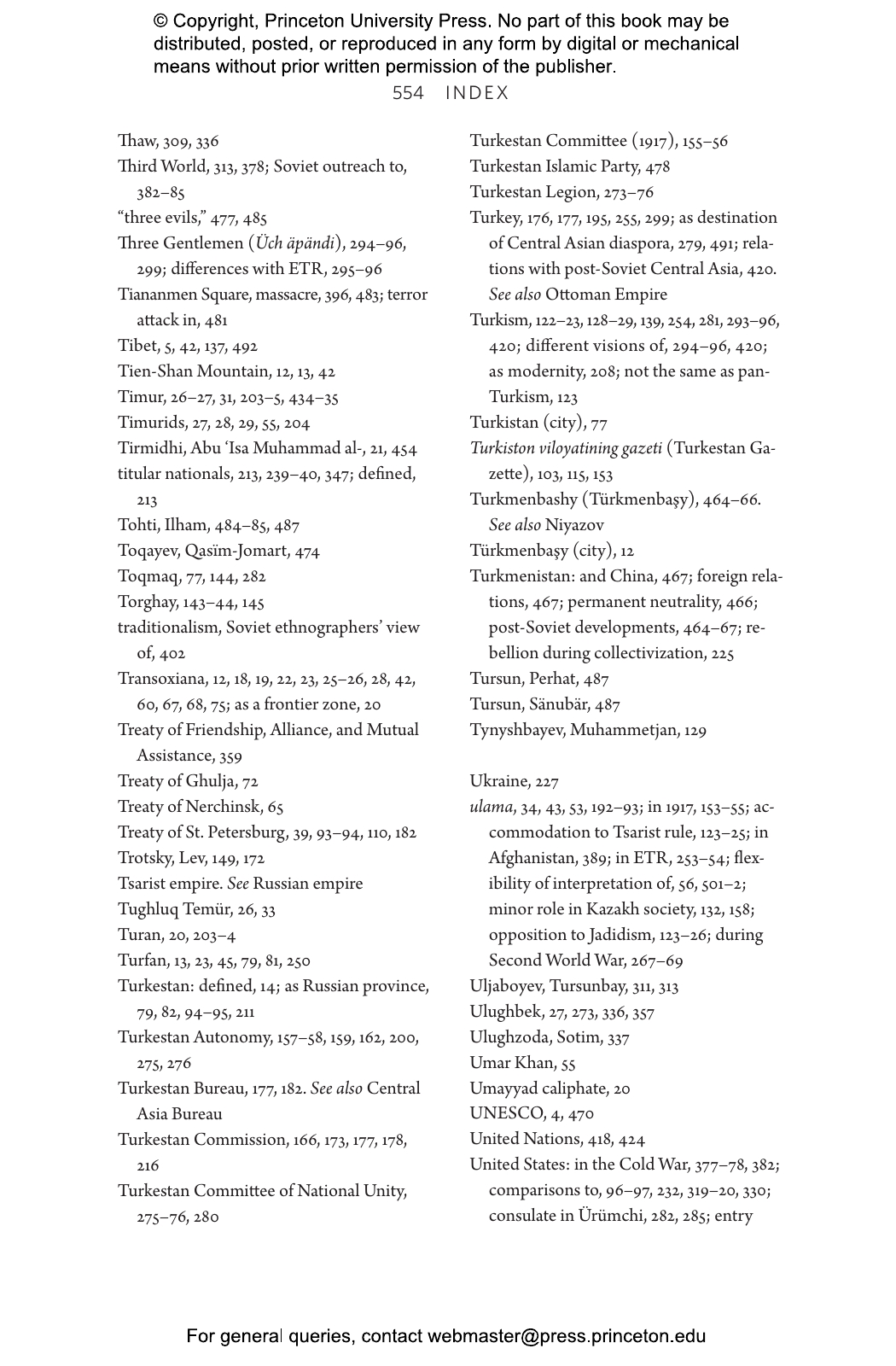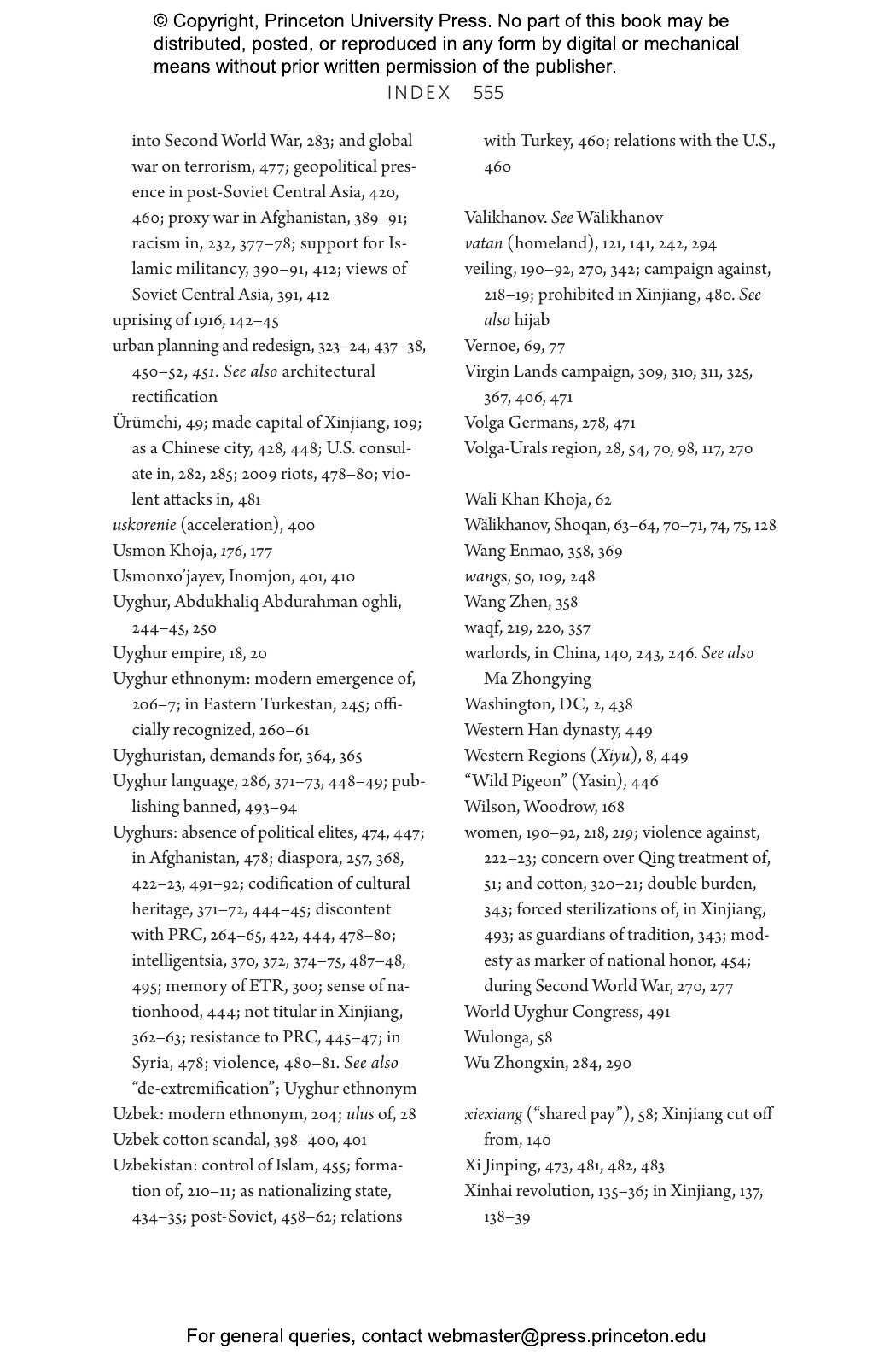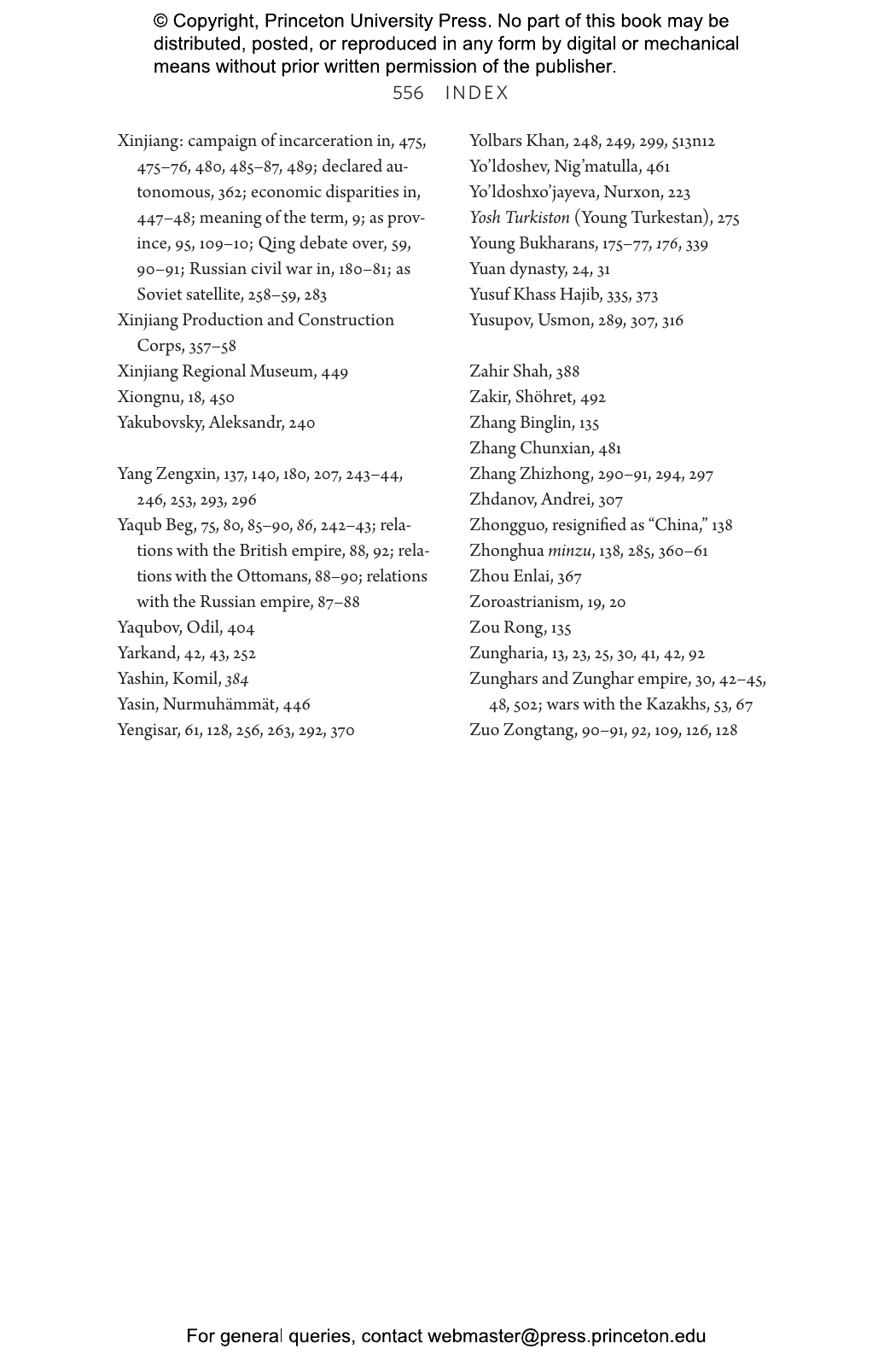Central Asia is often seen as a remote and inaccessible land on the peripheries of modern history. Encompassing Uzbekistan, Tajikistan, Turkmenistan, Kyrgyzstan, Kazakhstan, and the Xinjiang province of China, it in fact stands at the crossroads of world events. Adeeb Khalid provides the first comprehensive history of Central Asia from the mid-eighteenth century to today, shedding light on the historical forces that have shaped the region under imperial and Communist rule.
Predominantly Muslim with both nomadic and settled populations, the peoples of Central Asia came under Russian and Chinese rule after the 1700s. Khalid shows how foreign conquest knit Central Asians into global exchanges of goods and ideas and forged greater connections to the wider world. He explores how the Qing and Tsarist empires dealt with ethnic heterogeneity, and compares Soviet and Chinese Communist attempts at managing national and cultural difference. He highlights the deep interconnections between the “Russian” and “Chinese” parts of Central Asia that endure to this day, and demonstrates how Xinjiang remains an integral part of Central Asia despite its fraught and traumatic relationship with contemporary China.
The essential history of one of the most diverse and culturally vibrant regions on the planet, this panoramic book reveals how Central Asia has been profoundly shaped by the forces of modernity, from colonialism and social revolution to nationalism, state-led modernization, and social engineering.
"In his monumental Central Asia, Adeeb Khalid puts the region at the 'crossroads of history'. A laboratory of colonialism, revolution, nation building and telescoped social and cultural transformation, it has experienced 'every achievement of modernity and every one of its disasters'."—Daniel Beer, Times Literary Supplement
"Khalid presents a masterful history of modern Central Asia which is at once scholarly, analytical and wonderfully accessible. . . .Adeeb Khalid deserves our gratitude for producing a path-breaking study of modern Central Asian history. One hopes it will pave the way for more."—Scott C. Levi, History Today
"The book is successful in revealing the two centuries of political, social and cultural history of the peoples of Central Asia, and serves to further progress knowledge about this region."—Mirzokhid Askarov, Ethnic and Racial Studies
"One of the newest and comprehensive studies on the region. It is a very broad and, at the same time, concise introduction to Central Asian history."—Marat Iliyasov, The Rest Journal
"Formidably detailed, Central Asia is ideal for upper-level students wondering how a chronically misunderstood region has been shaped by broad currents and dominant powers of modern world history, in concert with local actors."—Andrew M. Wender, World History Connected
"This book not only illuminates but also invigorates the study of Central Asia through an engaging and accessible narrative."—Yuan Gao, Asian Review of World Histories
“Khalid invites readers to think about modern Central Asia as a geographically and historically integrated region with a shared history of imperial conquest. He affords a clearer understanding of how its people have experienced the challenges of modernity and development amid the forces of imperialism, Communism, and globalization.”—James A. Millward, author of Eurasian Crossroads: A History of Xinjiang
"A masterful work. Adeeb Khalid draws together the legacies of the Russian and Chinese imperial conquests of Central Asia to provide a comprehensive and compelling understanding of the region's political, cultural, and social transformations."—Marianne Kamp, author of The New Woman in Uzbekistan: Islam, Modernity, and Unveiling under Communism
"A remarkable achievement. Khalid does an exceptional job at presenting a balanced, insightful, and accessible treatment of Central Asian history and analyzing the contingencies that led it to unfold the way it did. This is history writing at its best."—Scott C. Levi, author of The Bukharan Crisis and The Rise and Fall of Khoqand, 1709–1876
"A superb work of scholarship that skillfully weaves together more than two decades of research on modern Central Asia."—Michael A. Reynolds, author of Shattering Empires: The Clash and Collapse of the Ottoman and Russian Empires, 1908–1918
"Sophisticated but accessible, this book offers a long-overdue corrective to the division of Central Asia's history into east and west. Khalid shows how the two zones' fates have not just run parallel but have been intertwined, both despite and because of their colonization by China and Russia."—Rian Thum, author of The Sacred Routes of Uyghur History
